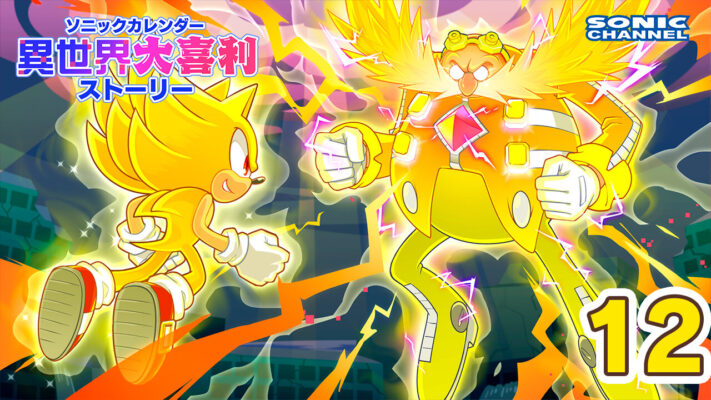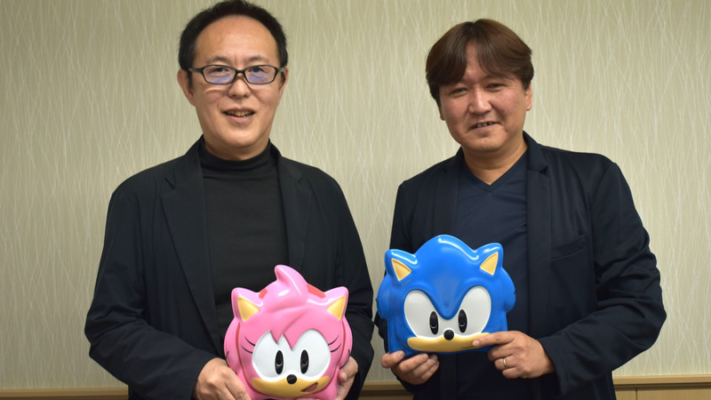On February 11th, the Tokyo performance of the Sonic Symphony World Tour will be held at LINE CUBE SHIBUYA (Shibuya Public Hall). In this event, an orchestra and a rock band will perform the iconic songs from the globally popular game series Sonic, allowing the audience to experience its overwhelming world. The stage’s back screen will display gameplay footage, providing a luxurious experience for fans of the series. The Japanese performance is part of the ongoing world tour, with previous shows in London, Los Angeles, Boston, Chicago, and others having sold out. The tour continues to travel to various countries around the world.
For this Japanese performance, the comprehensive producer and guitarist Shota Nakama will lead a talented ensemble, including band members Adrian Cowan (Lead Vocals), Luis A. Ochoa (Bass/Background Vocals), Derek Dupuis (Keyboards/Background Vocals), and Blaze Collard (Drums). Additionally, the main composers for the Sonic series, Jun Senoue and Tomoya Ohtani, will participate as guest artists. The Tokyo Philharmonic Orchestra will provide orchestral accompaniment, with conductor Hirofumi Katsurada, known for collaborating with the Tokyo Philharmonic Orchestra across various genres, taking the lead.
Shota Nakama has been dedicated to exploring the realms of game music, orchestration, and rock symphony since his time at Berklee College of Music. Considered a leading figure in this field, Nakama served as a producer for the online live event “Sonic 30th Anniversary Symphony,” celebrating Sonic’s 30th birthday, which was streamed in June 2021. Ahead of the Japanese performance, I had the opportunity to speak with Nakama, Jun Senoue, and Tomoya Ohtani. (Yuki Kawasaki)
Sonic Symphony: Journeying Through the Entire History of Sonic Works
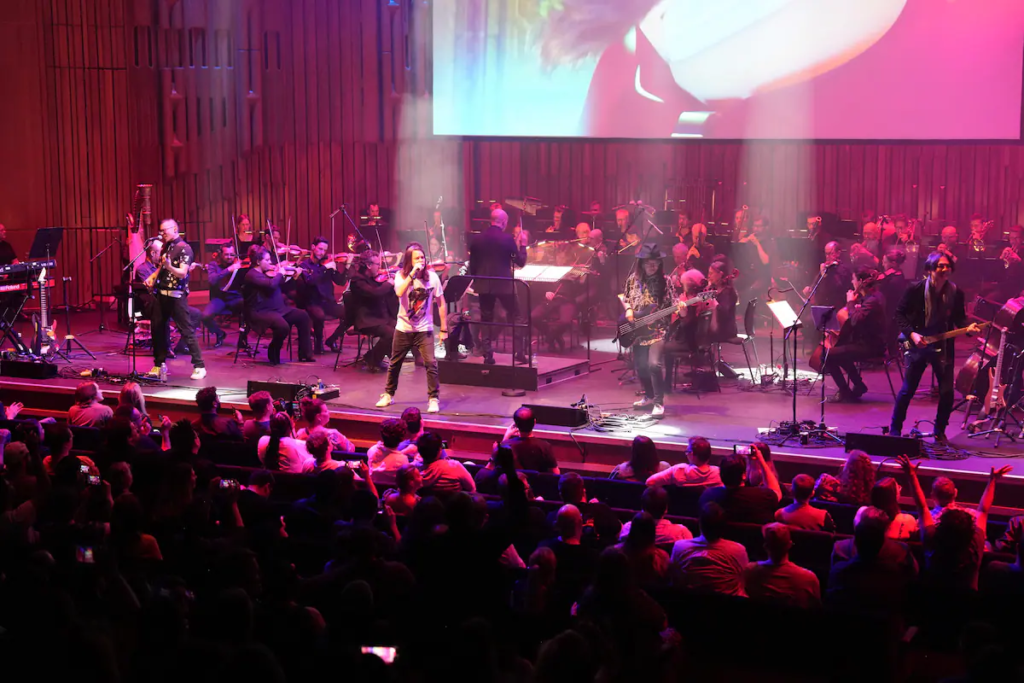
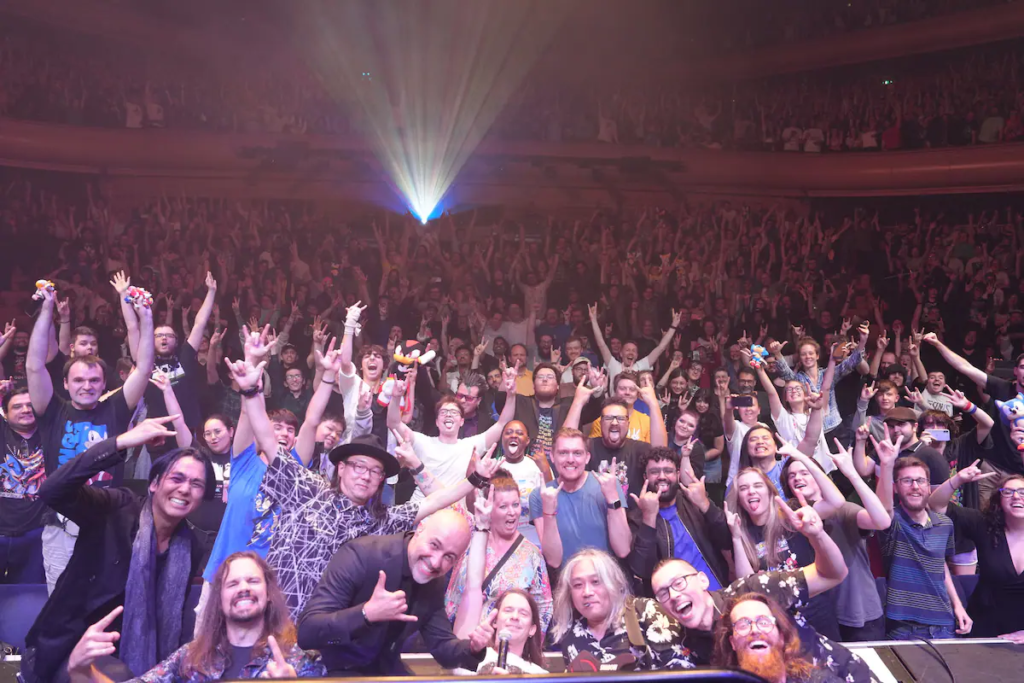
―― When talking about the music of Sonic, with the continuous increase in tracks throughout the series, the blending of genres remains one of the interesting aspects. Once again, I’d like to hear about your musical roots.
Jun Senoue (hereafter, Senoue): I spent my junior high school years abroad, so I was a boy who liked what is commonly referred to as Western music. Especially rock. The first instrument I touched as a player was the keyboard, but later I picked up the bass, and in high school, I got my hands on the guitar. If you listen to my songs, you’ll understand that I often create songs starting from the guitar. In the Sonic series, I’ve had the opportunity to create vocal songs categorized as Western rock, which led to activities with my band Crush 40. I think my roots are in band sounds.
Tomoya Ohtani (hereafter, Ohtani): When I was in junior high school, there was a band boom, and I formed a band with friends like everyone else. Starting with the bass, I initially liked punk rock, but gradually, I became drawn to mixture bands like Red Hot Chili Peppers. I was attracted to music with elements of funk, soul, and rap, and my interest shifted towards genres that form the roots of mixture rock. I began exploring music from the ’70s, such as Sly & the Family Stone. At the same time, as I gathered recording equipment for creating demo tapes of original band songs, I acquired an AKAI sampler. I started sampling rare groove records and learned that I could create HIPHOP with these sounds. I began developing an interest in house, techno, drum and bass, and gradually shifted from bands to track making while spending my late teens to early twenties.
Shota Nakama (hereafter, Nakama): After the second year of junior high, I was mostly a non-attendee, but during that time, I was shocked by a Deep Purple cover band I saw. After that, I immediately told my mother that I wanted a guitar. My uncle, who used to be in a band, helped me get a guitar, and the moment I held that guitar, I decided to “live through music.”
I didn’t go to high school, so during that time, I mainly did part-time jobs and played in a band. However, even then, I believed that “real music” was probably in America. Also, living in Okinawa, where I felt close to America, I was convinced that I would go to the United States someday. At that time, by chance, I knew someone connected to the study abroad office of Pierce College, a community college in south Seattle. One day, out of the blue, he said, “Are you ready to go to America soon?” When I asked when, he replied, “In five days!” (laughs). I settled in America since then. Initially, I attended a community college in Seattle, but I had a dispute with a professor and quit.
――After that, you enrolled in the world-renowned Berklee College of Music. I heard that you entered the film scoring department.
Nakama: Everyone says “amazing!” when they hear about it, but at the time I applied to Berklee, there wasn’t an entrance exam. If you could speak a bit of English and play an instrument, you could get in. I think they introduced the entrance exam system around the year after I graduated.
Originally, I planned to major in performance. I wanted to become a pure musician, so I wanted to go into the performance department. However, as a transfer student, I already had two years’ worth of credits, so my options were limited. Among the available choices, the film scoring department seemed to offer the most comprehensive education – although, to be honest, I didn’t do much during my time there (laughs). I think I successfully completed my time as a not-so-serious student.
――Given that you have been organizing concerts that combine orchestras, game music, and even rock since then, you can now be considered a pioneer in the scene. The Sonic 30th Anniversary Symphony held in 2021 was truly wonderful.
Senoue: It is certain that the event served as the kick-off for the Sonic Symphony world tour. While both Ohtani and I are positioned as guest artists in this world tour, the core is handled by Mr. Nakama and his band. Rather than focusing on specific music or works in the Sonic series, the entire show is designed to traverse the entire history of the series, from the Mega Drive titles to the Dreamcast era and up to the latest installment. This structure is a result of Mr. Nakama’s filter guiding the entire show.
Ohtani: After the Sonic 30th Anniversary Symphony, when the discussion turned to doing a real-world tour as a follow-up to the online event, initially, I thought it would be a recreation of the online content in a live setting. I planned to invite the members I always record with and perform at the concert as the Ohtani Band. However, as we fleshed out the details, it evolved into Mr. Nakama’s band taking the lead, and we would join as guests. While the online concert was the starting point, that’s a significant difference.
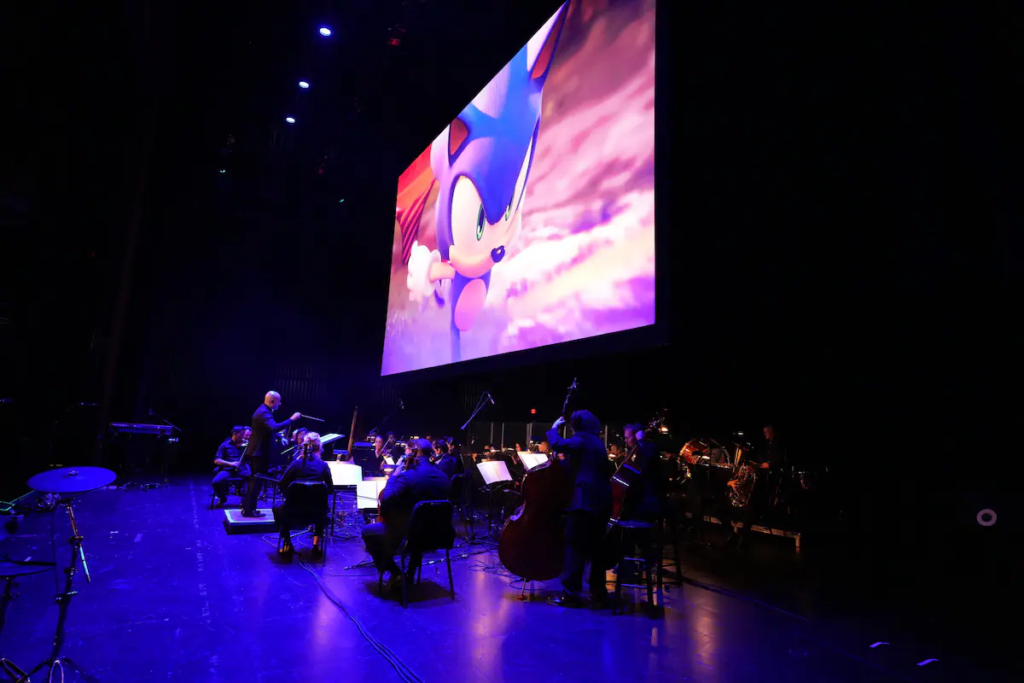
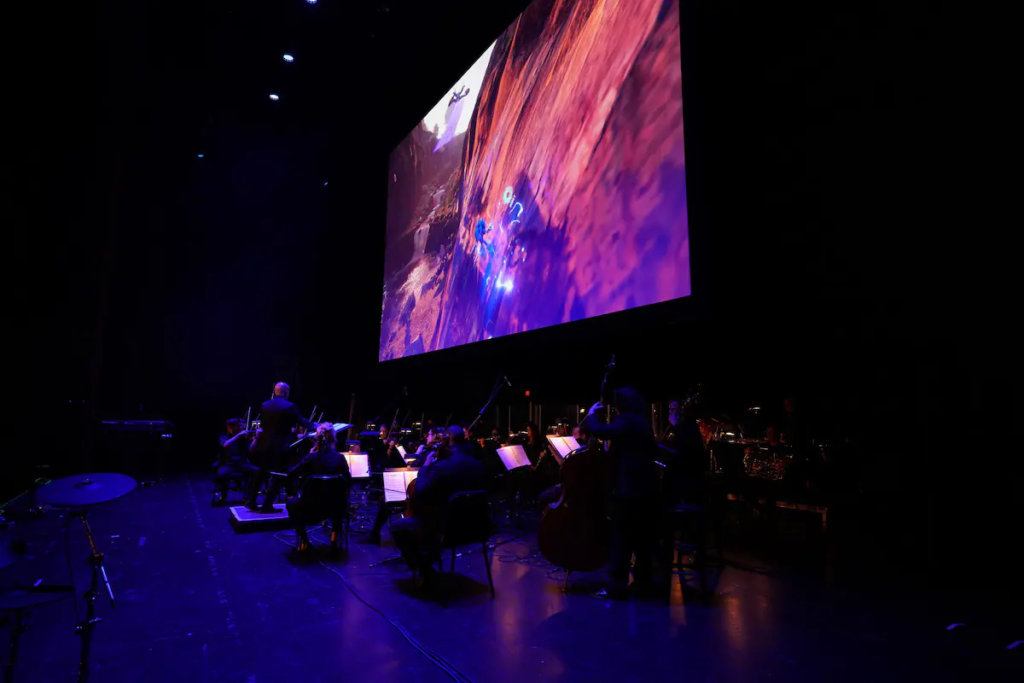
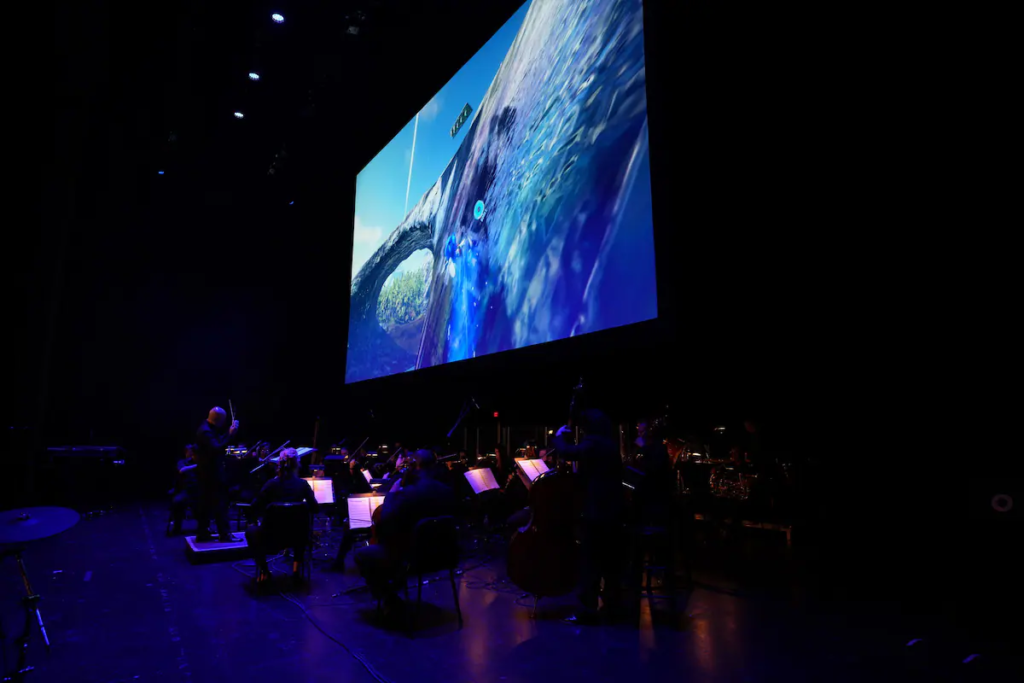
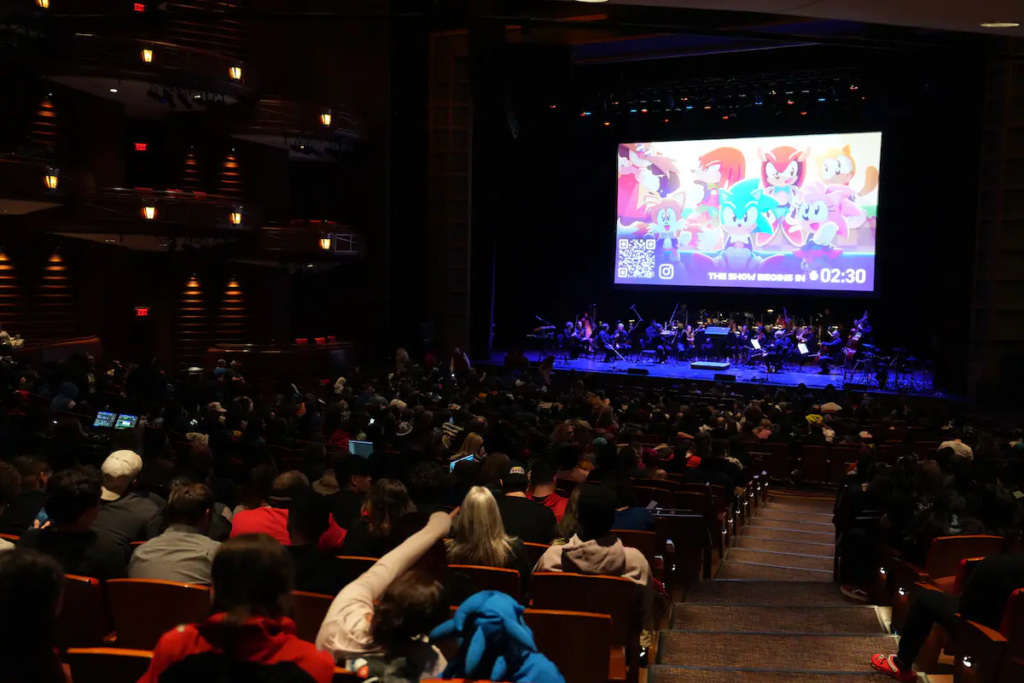
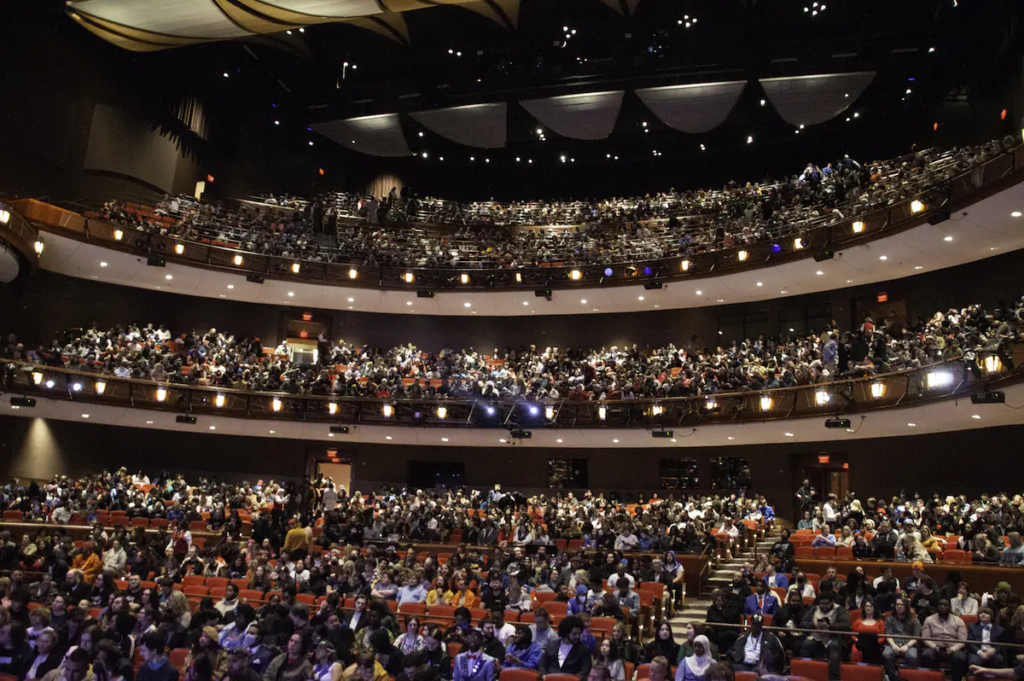
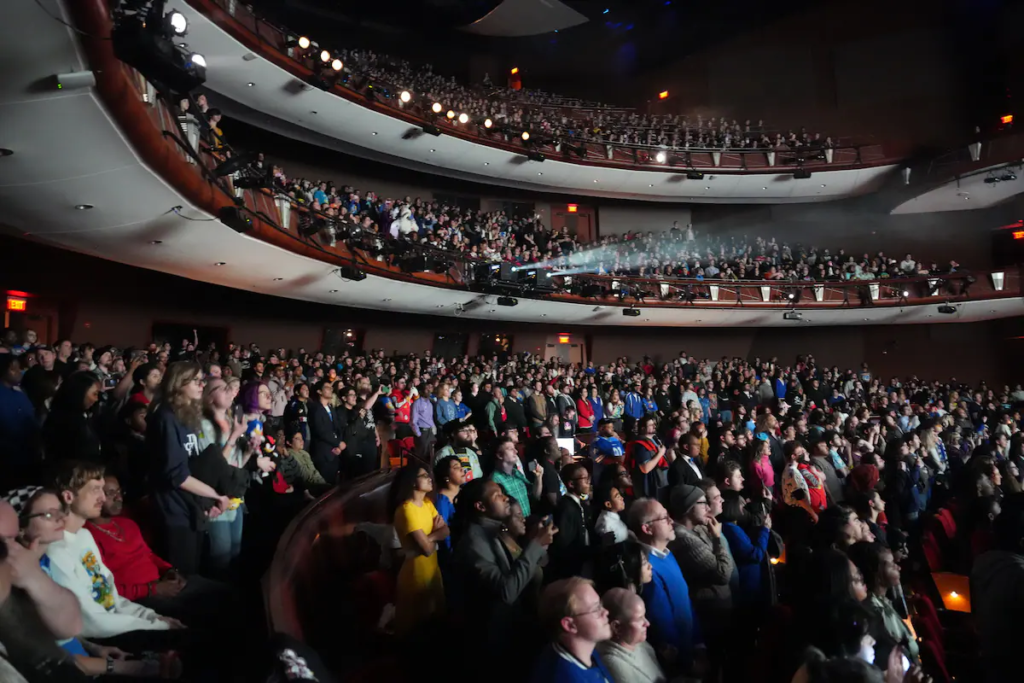
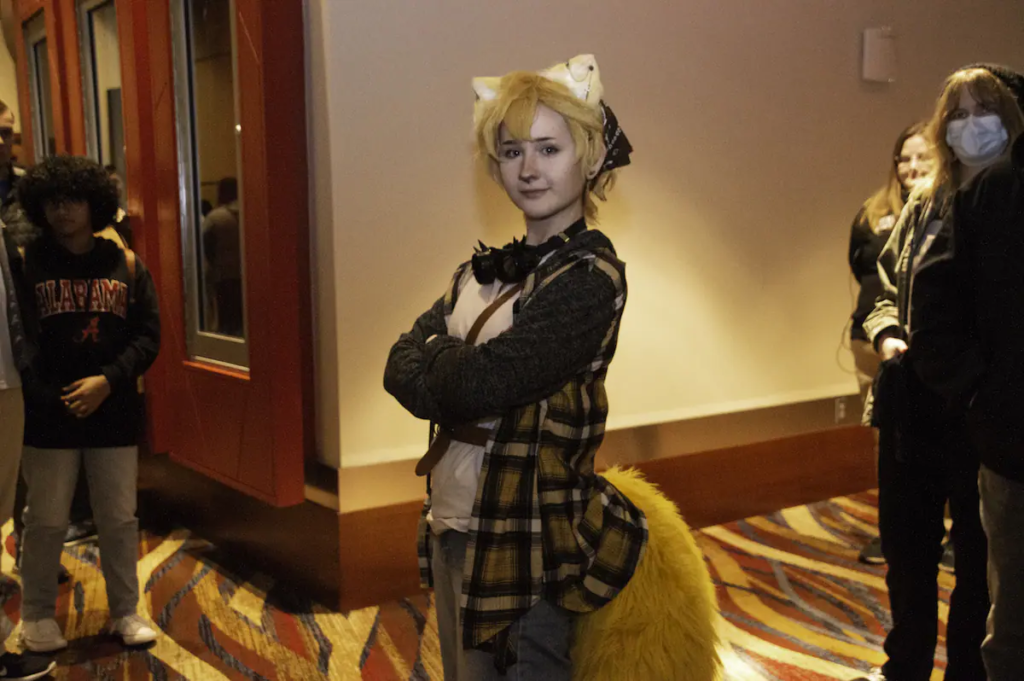
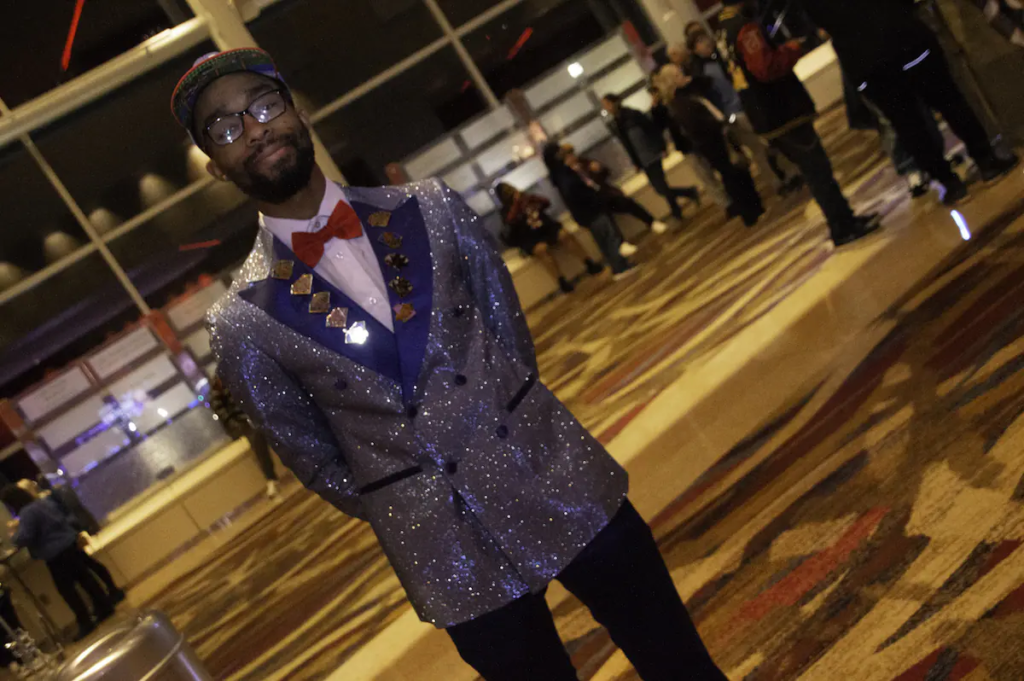
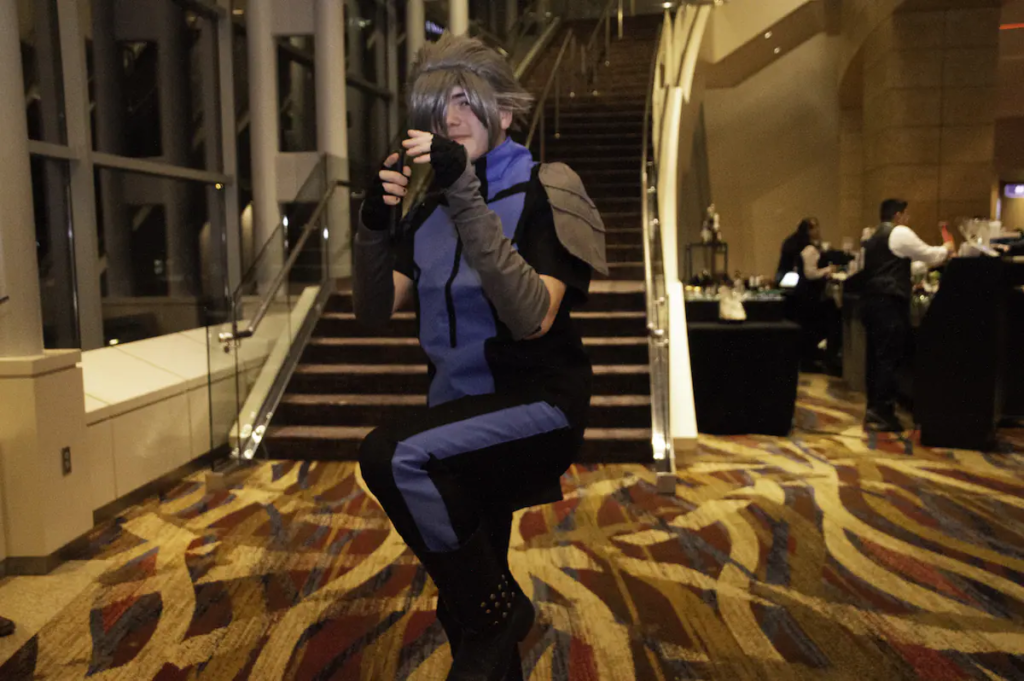
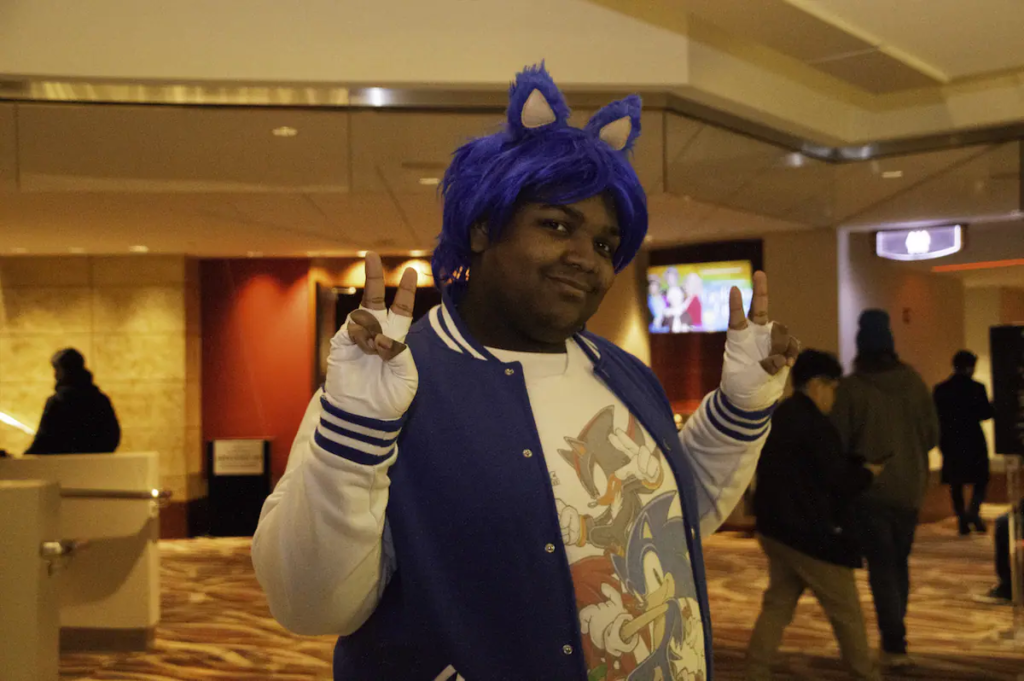
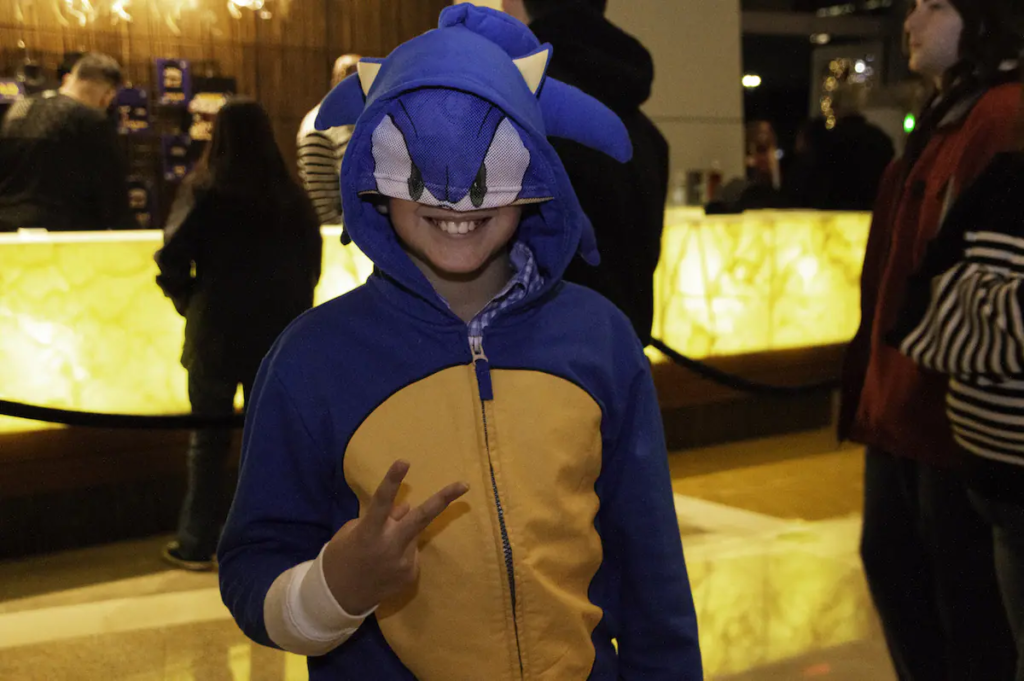
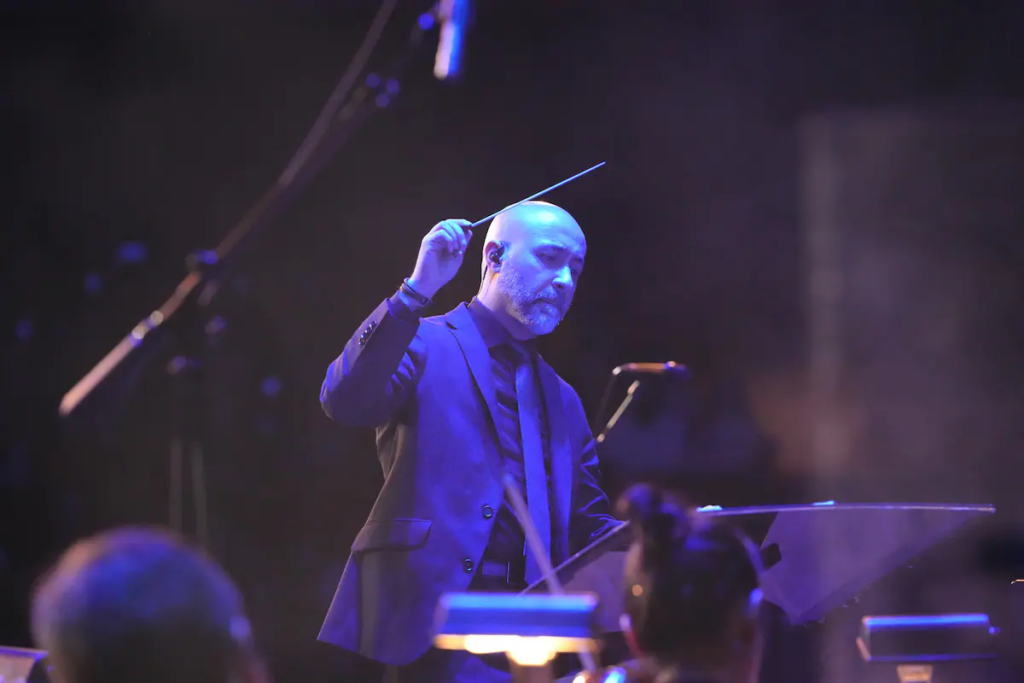
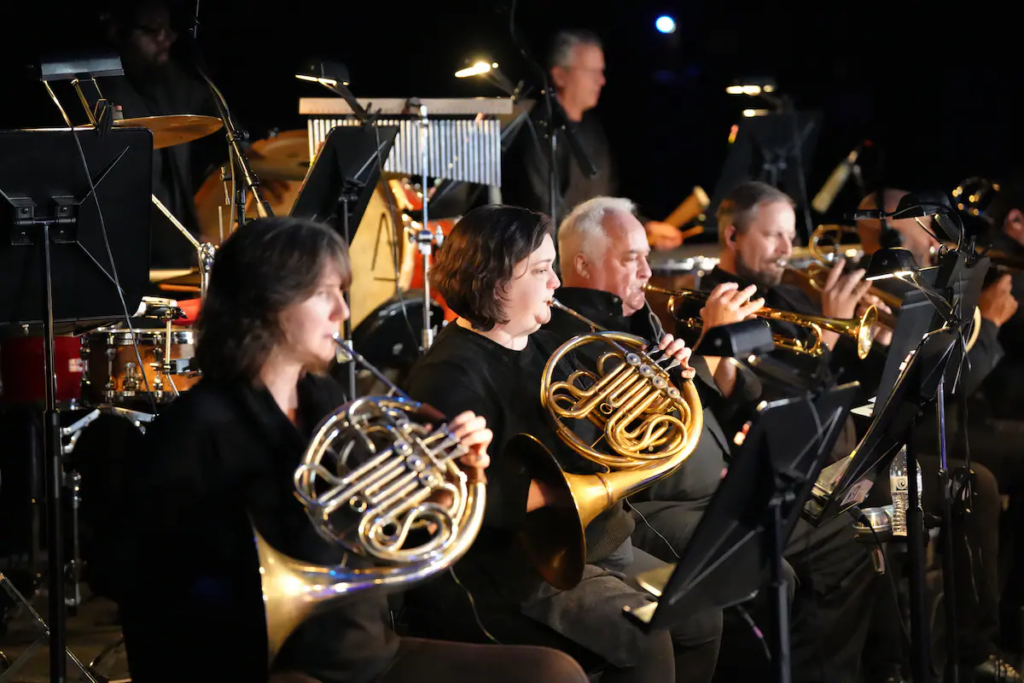
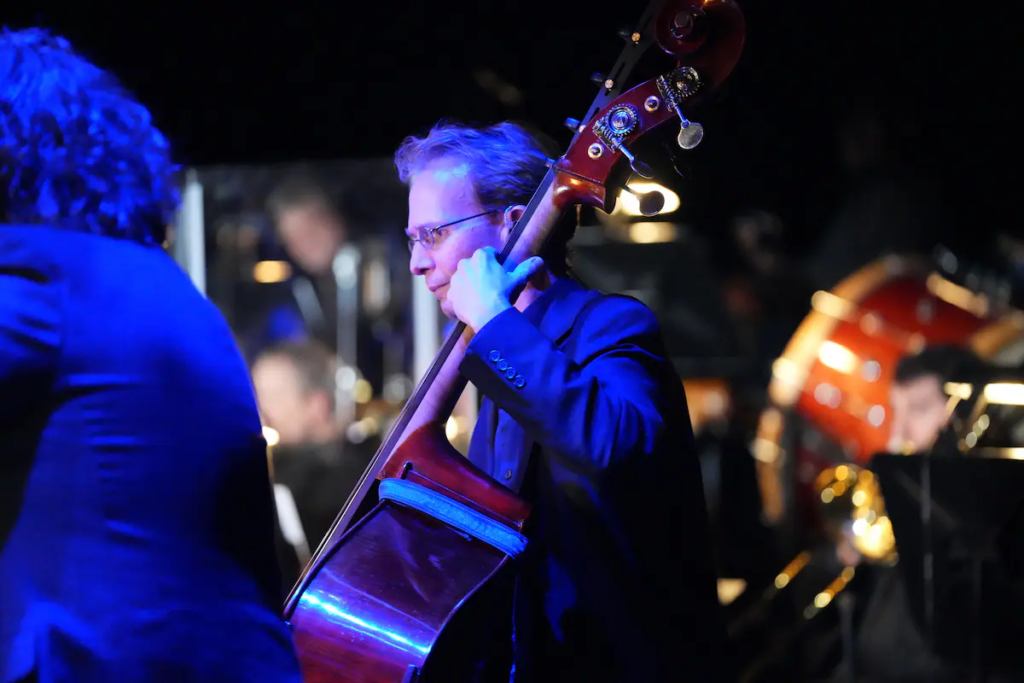
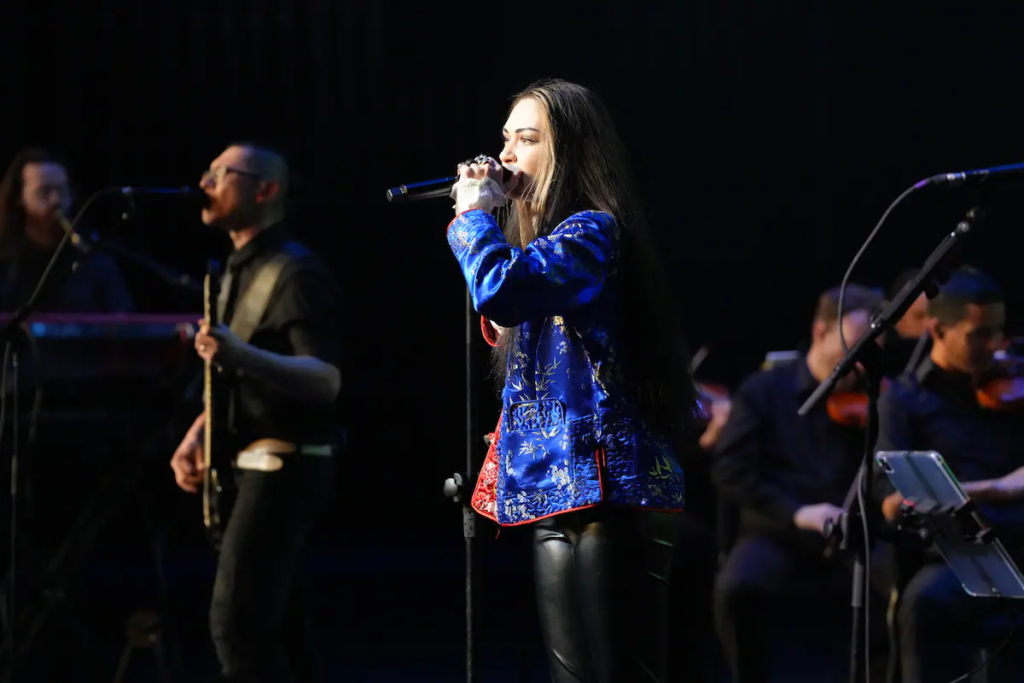

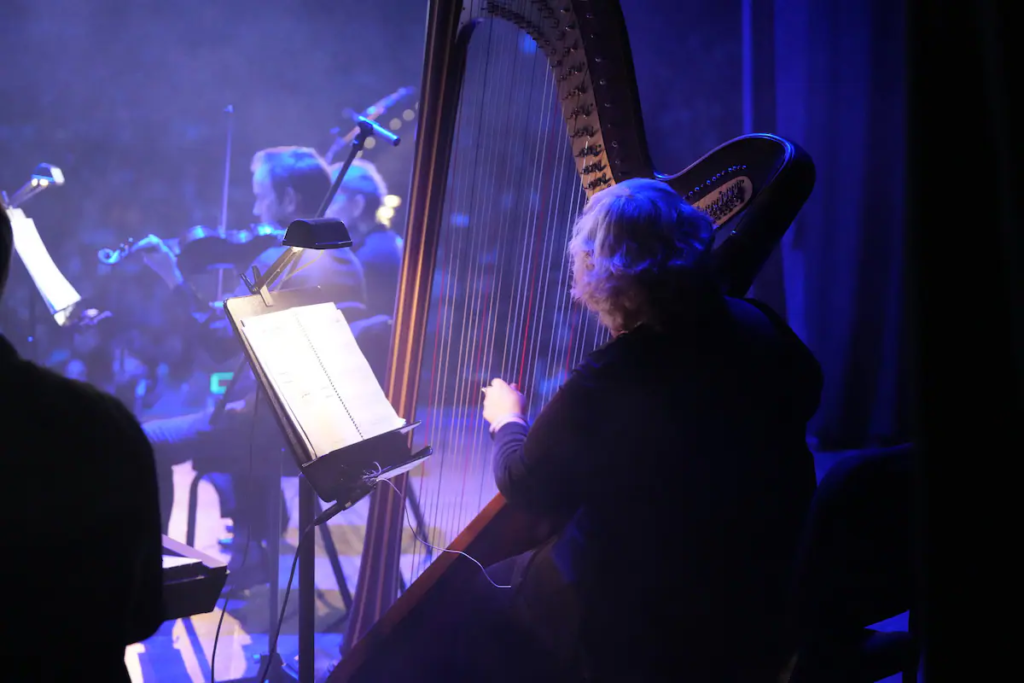
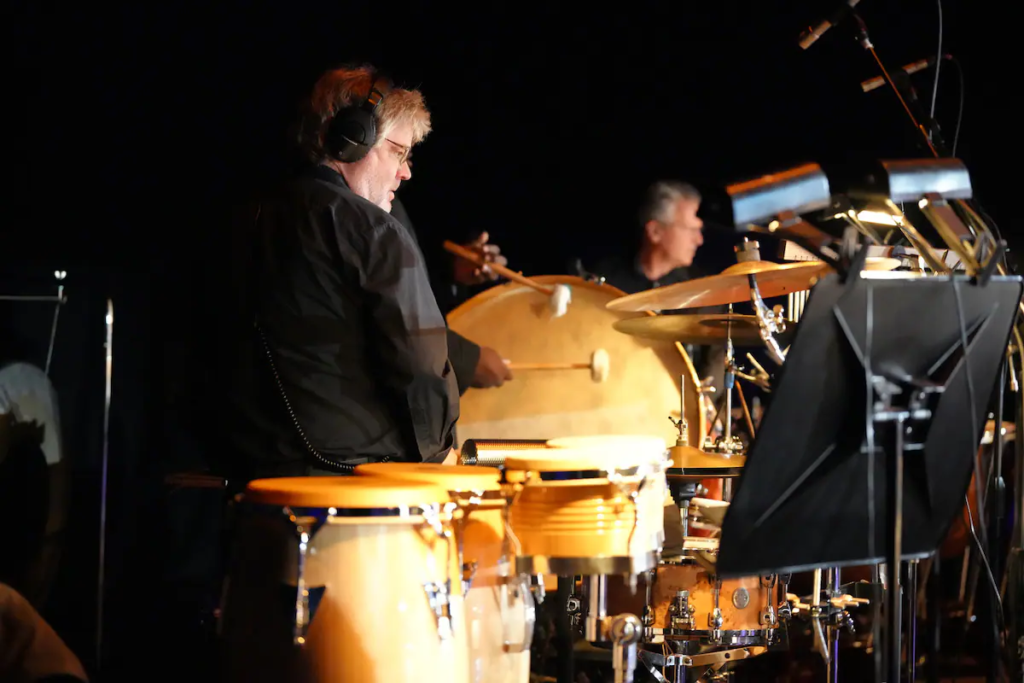
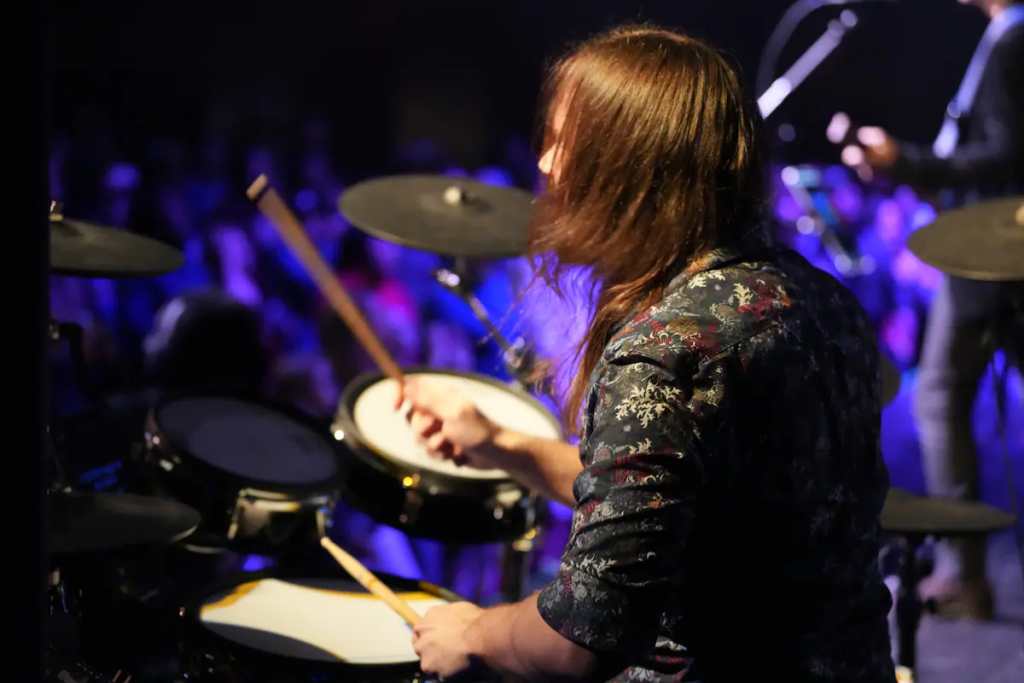
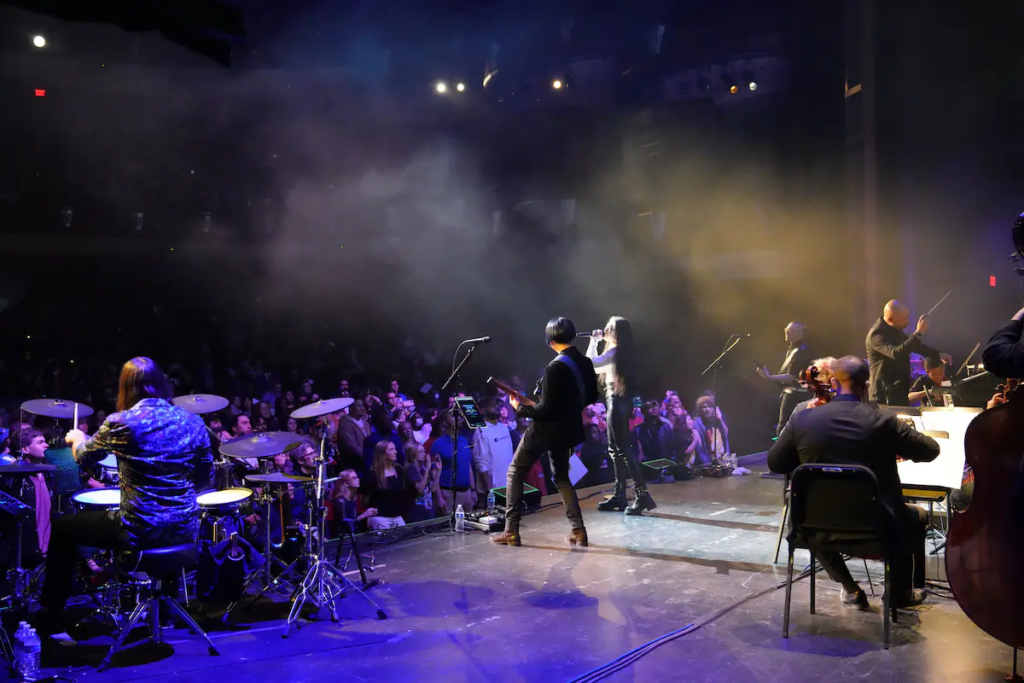
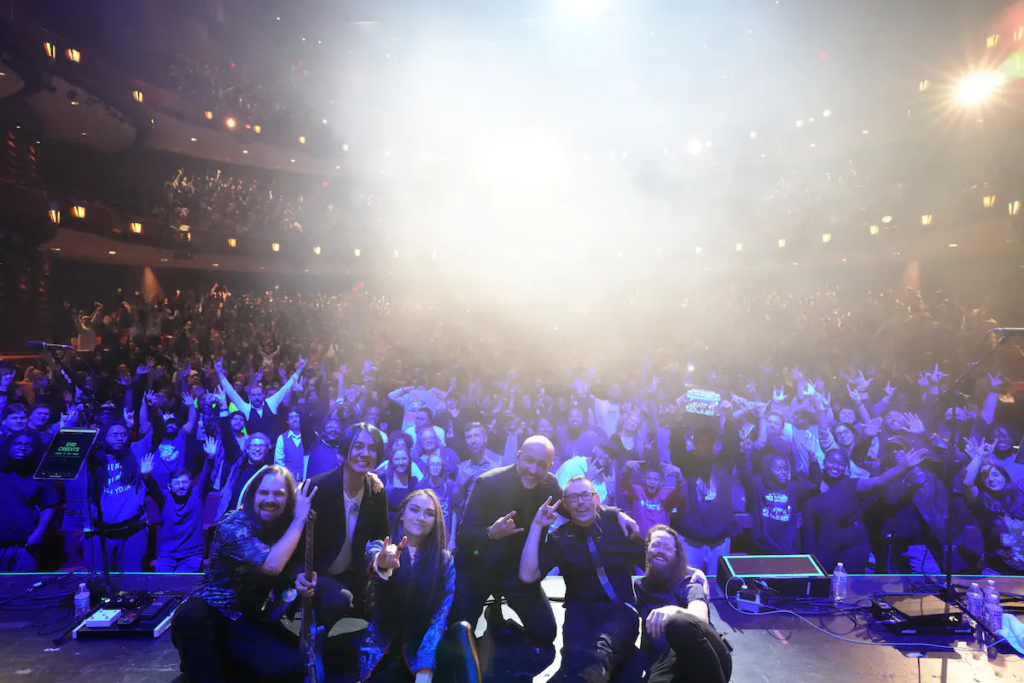
――Is it true that the feeling is different as a player?
Senoue: When I’m performing on stage, the feeling is the same, just as if there were different players when looking left and right. It doesn’t really change, especially for me.
Ohtani: That’s right. Of course, there is a desire to perform live with recording members whom I am familiar with, but after the concerts in London and Los Angeles, I could feel the appeal of this format. For the Sonic Symphony, I thought it would be better to properly emphasize the fun of this format. I wanted to bring it back to Japan in a form as close as possible to the one we did abroad.
Nakama: When our band performed with both of you in London and Los Angeles, I felt that a new form was emerging. Simply put, it was insanely fun (laughs). The live performances were extraordinarily exciting.
The artists we perform with have participated in various game music concerts and events before, but they say, the Sonic Symphony is the most exciting. Even the engineers occasionally say, “The cheers are so loud that we can’t hear anything from the PA system” (laughs).
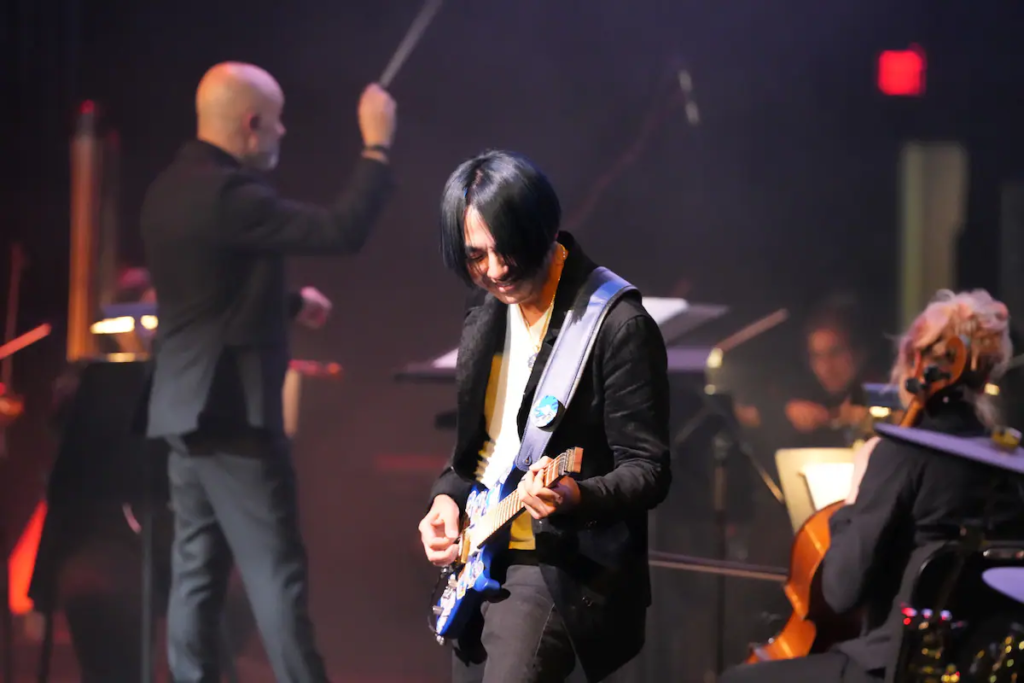
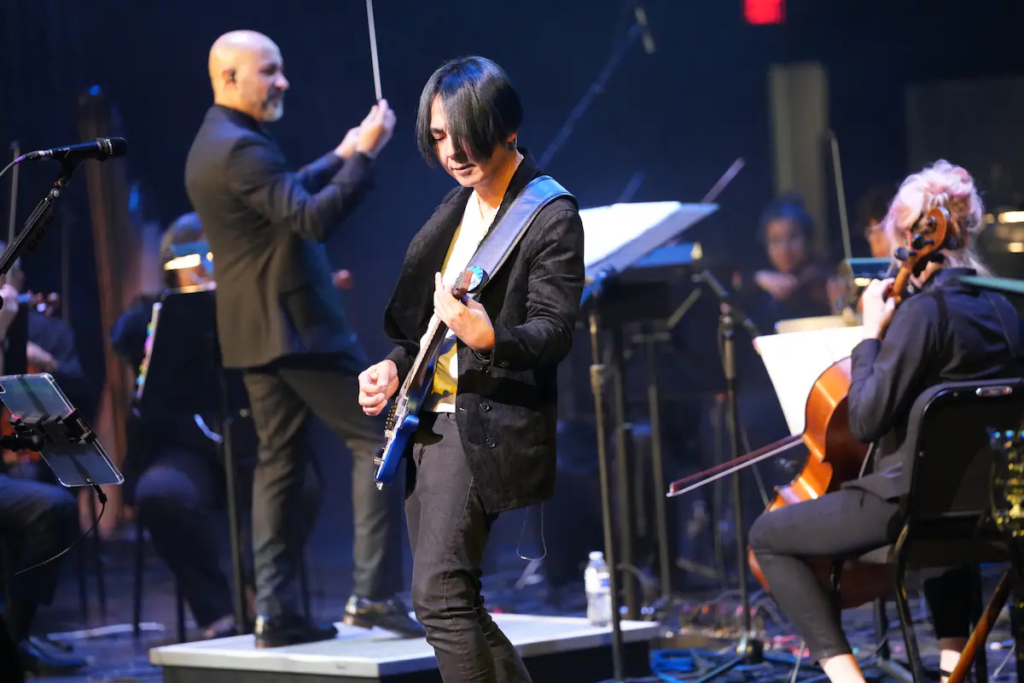
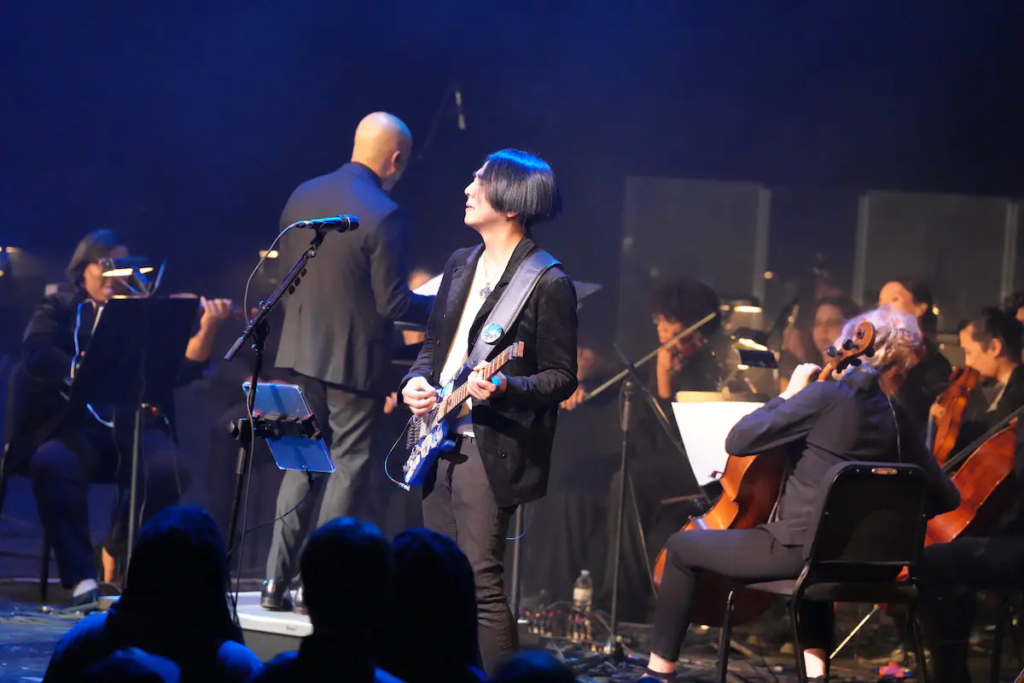
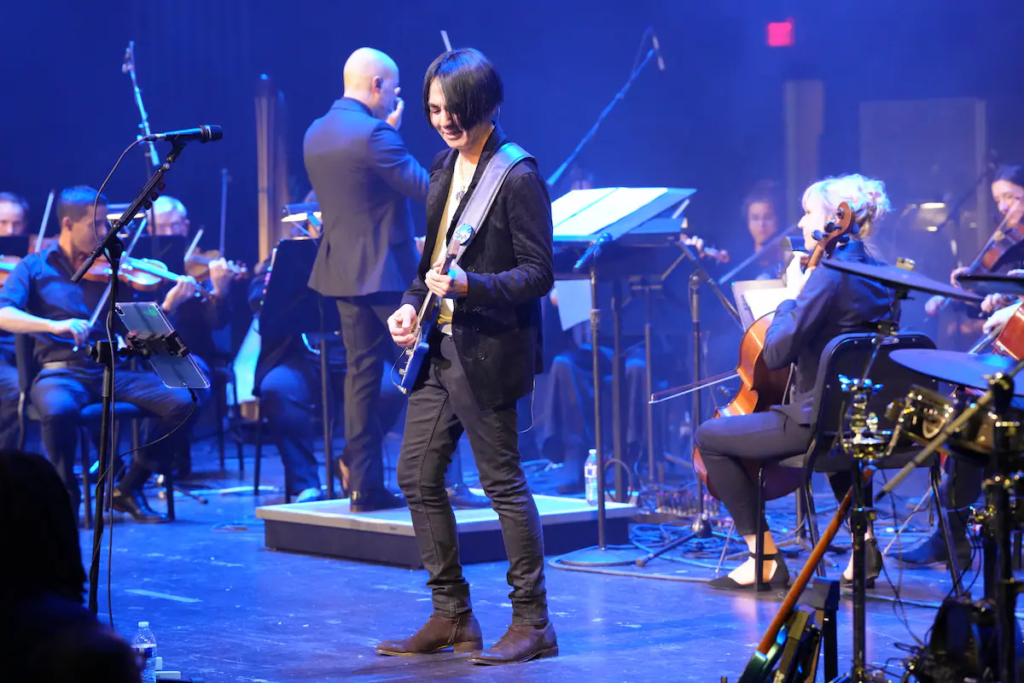
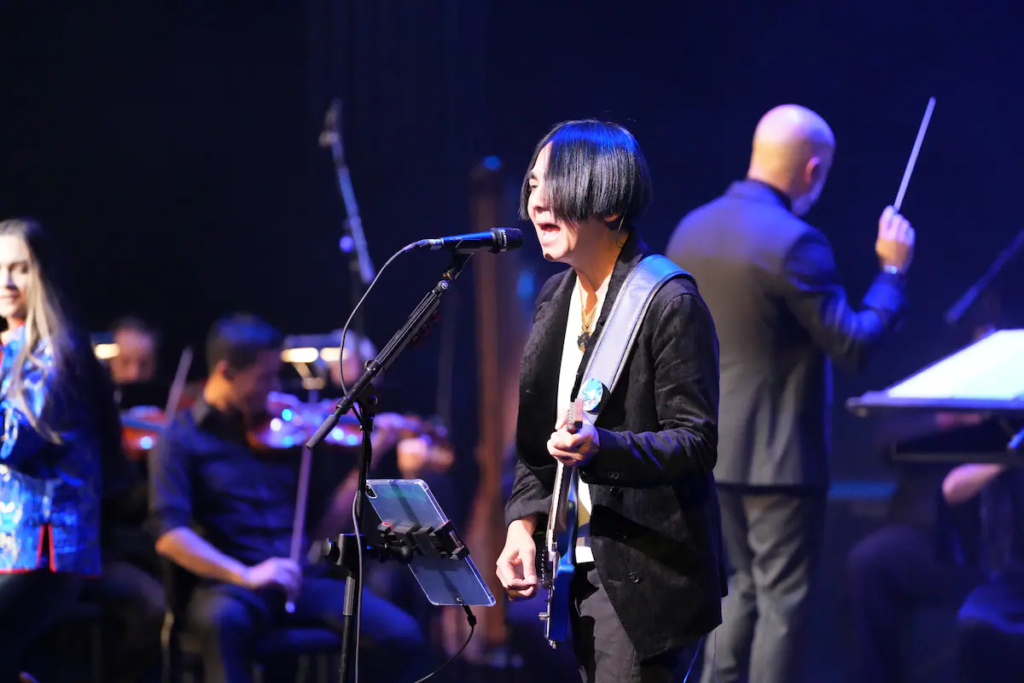
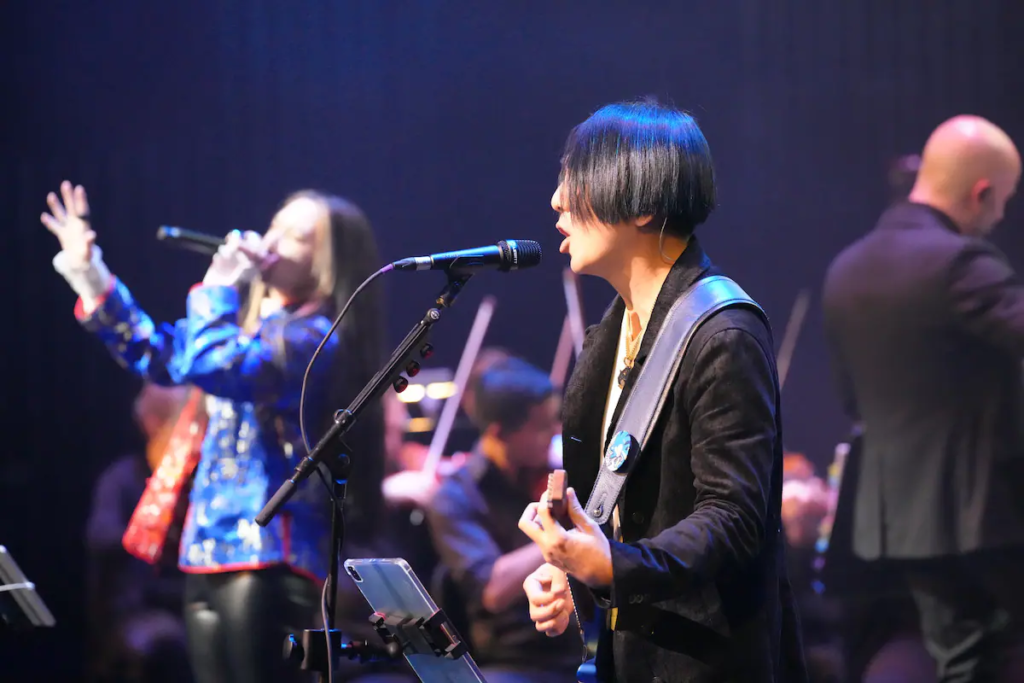
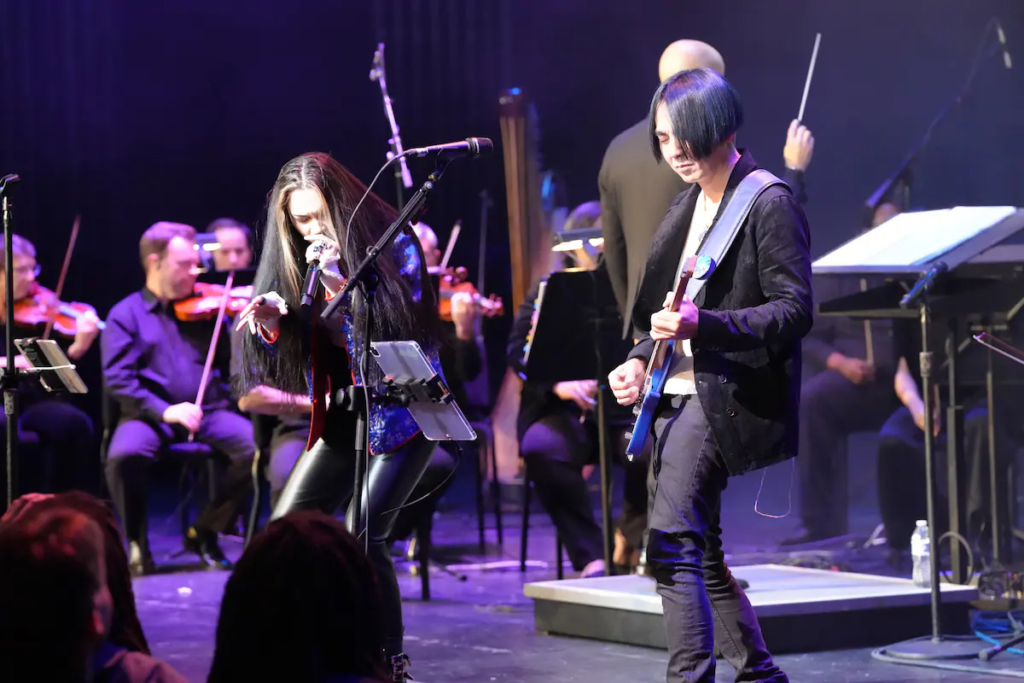
A Range Beyond Imagination, From Orchestra to Rock, Eagerly Awaited Japan Performance
―― Open Your Heart has been around for over 20 years since its creation. Did you anticipate that game music would generate sing-alongs from the audience to this extent? Every time I see Crush 40’s performance, I feel your presence as a ‘rock musician,’ including your stage behavior.
Senoue: When performing Escape From The City from Sonic Adventure 2 (2001) at overseas shows, the entire venue becomes a massive chorus from start to finish, and it’s overwhelming. In my case, since the time of Sonic Adventure (1998), I had been accumulating songs with the future in mind, thinking, “I’ll be prepared to perform with these songs in 5 or 10 years.” For example, in Knight of the Wind from Sonic and the Black Knight (2009), I intentionally included phrases assuming the audience would sing along.
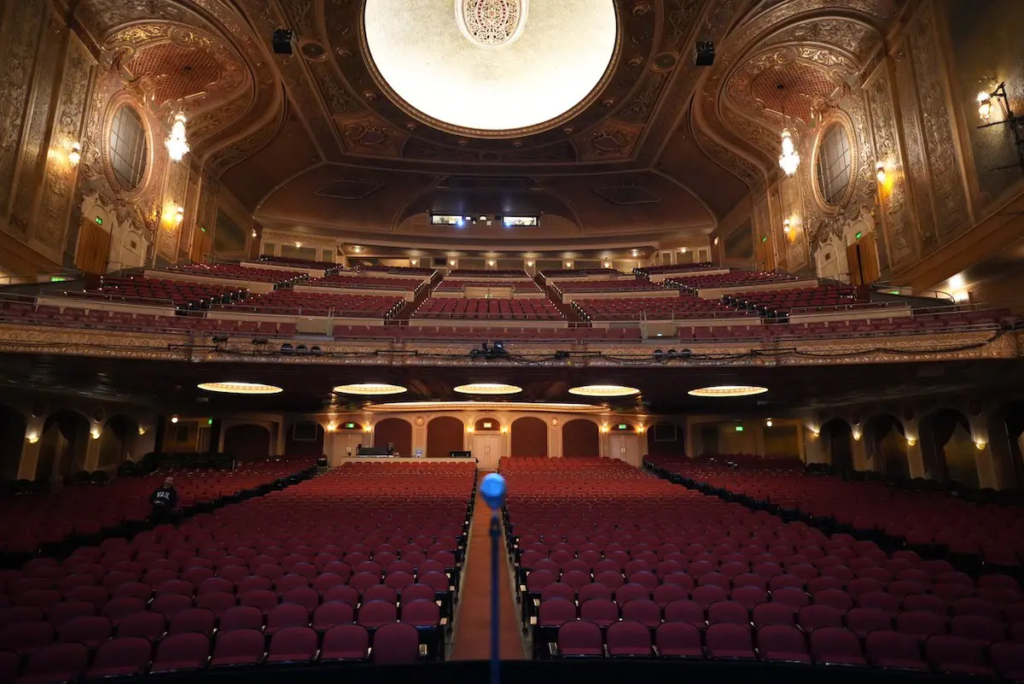
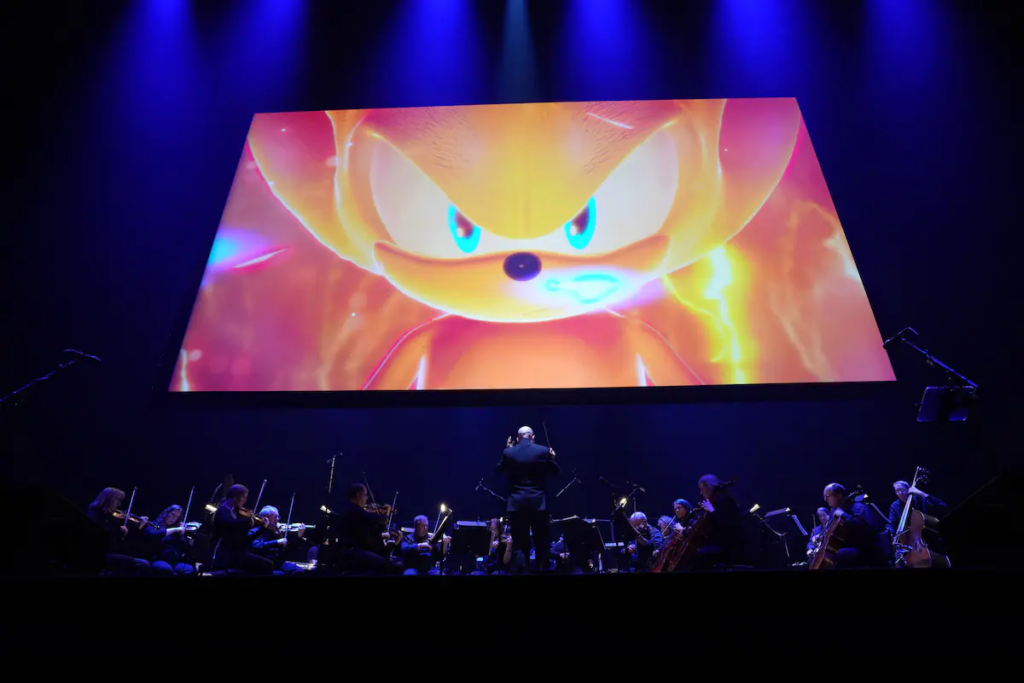
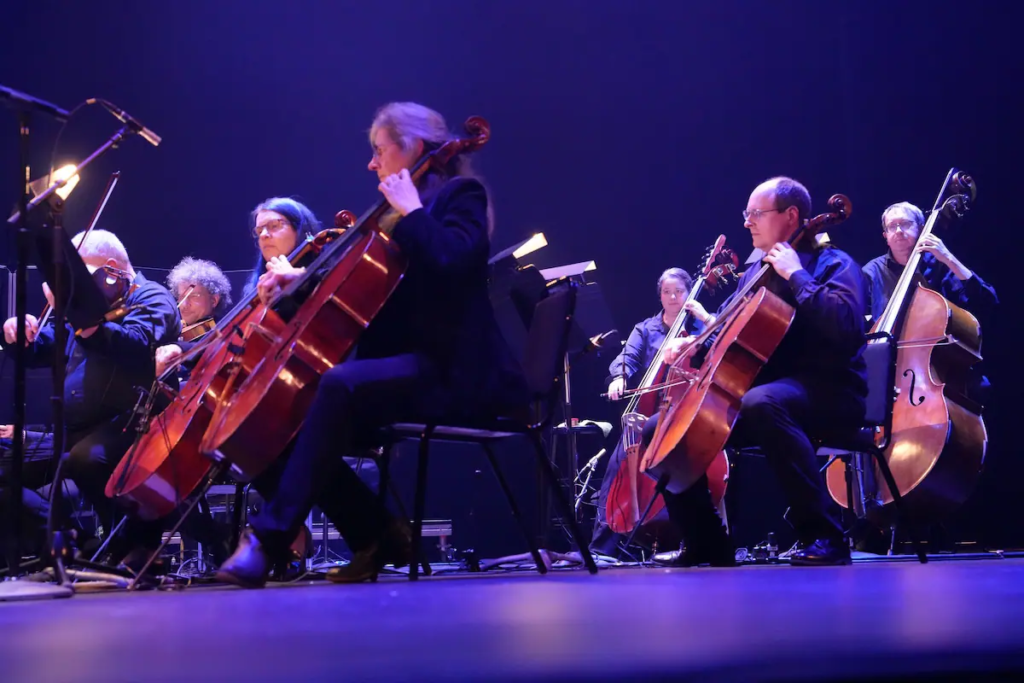
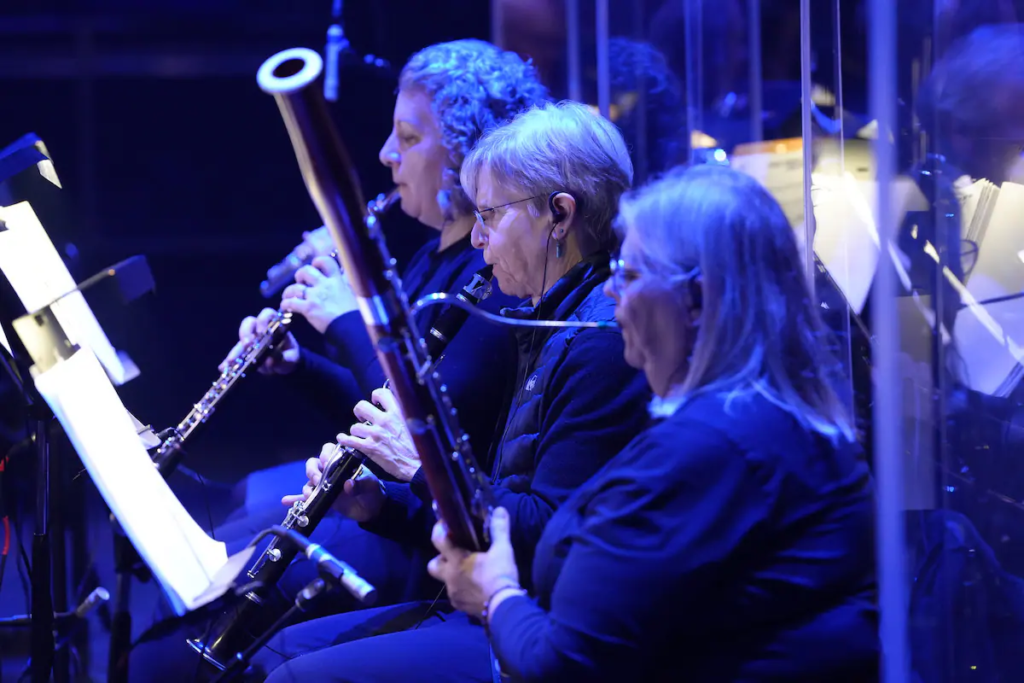
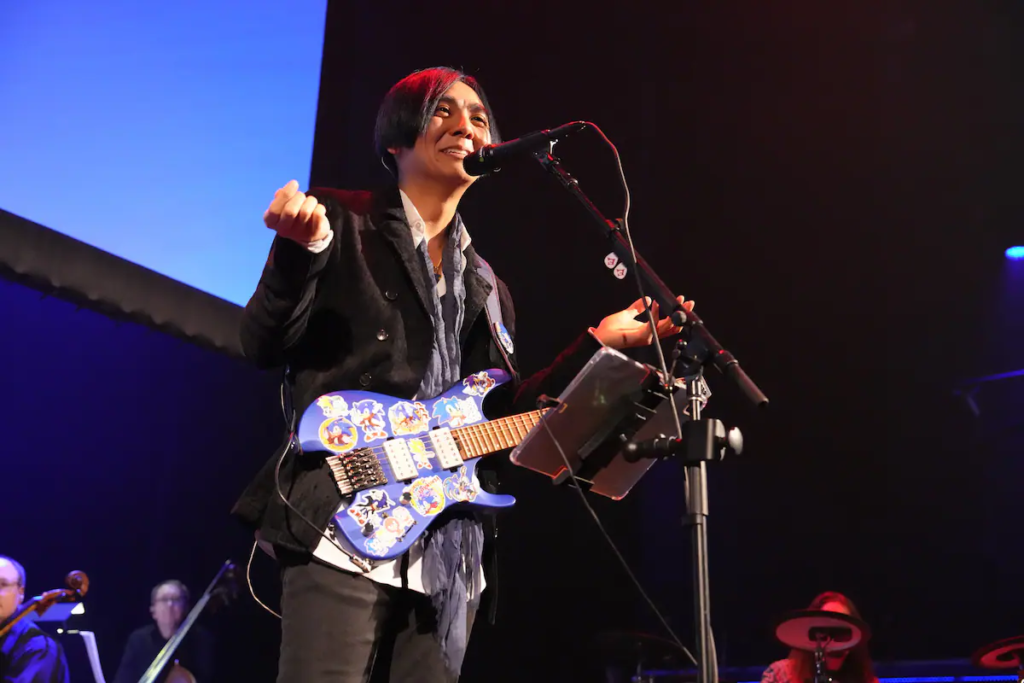
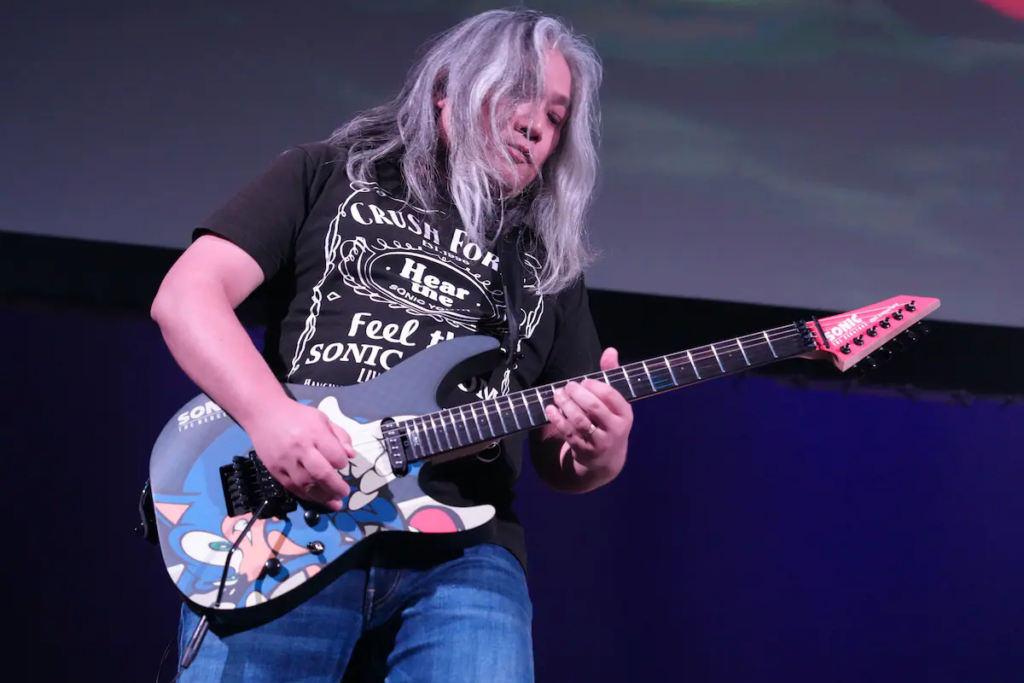
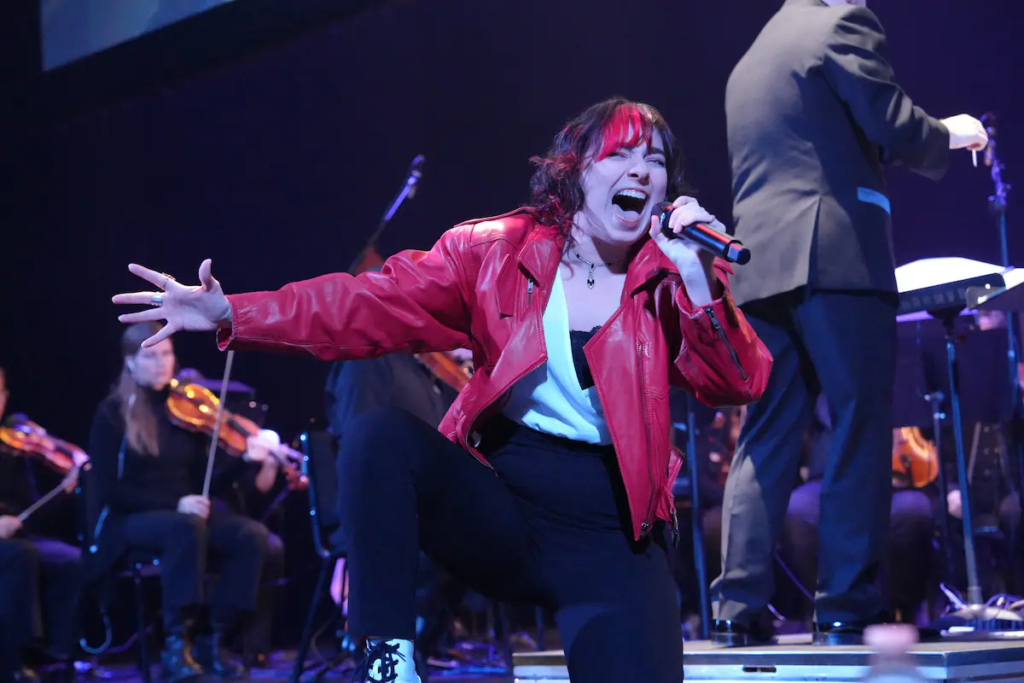
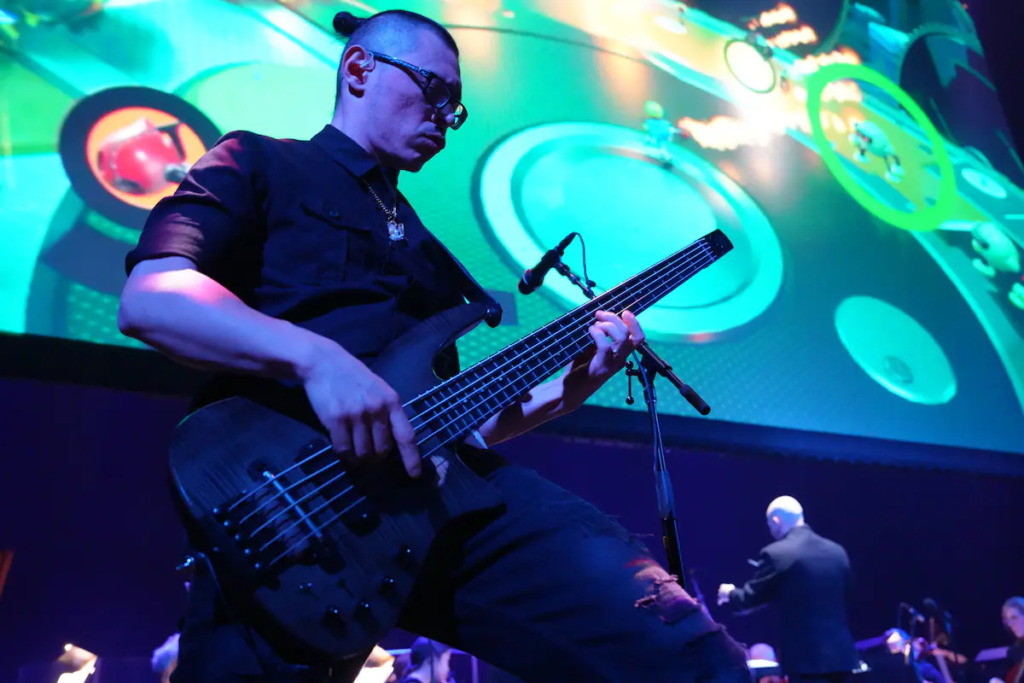
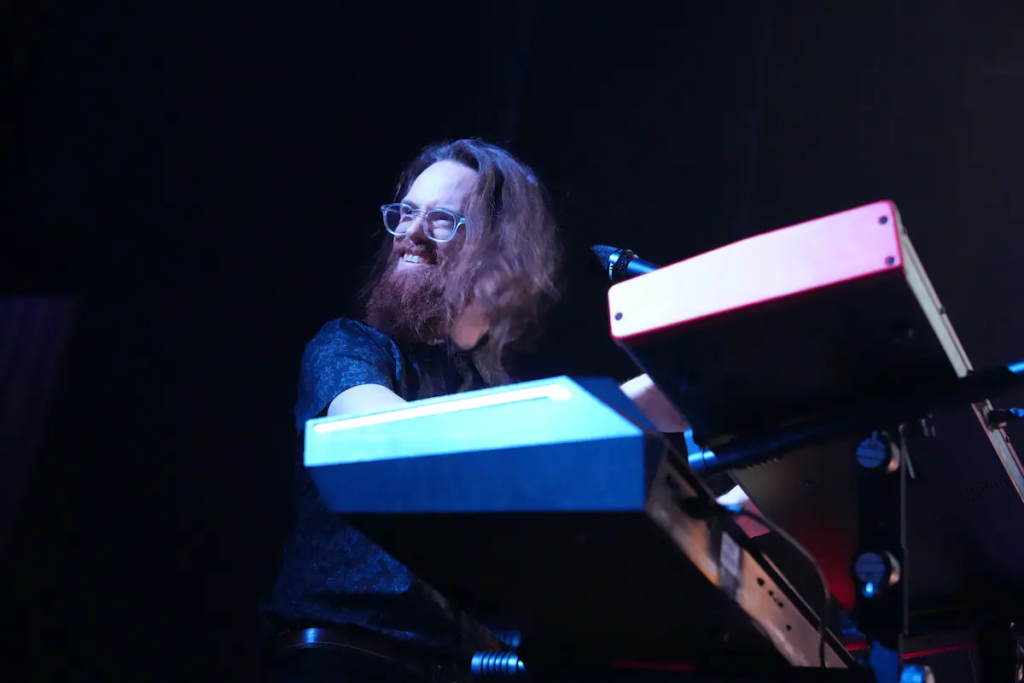
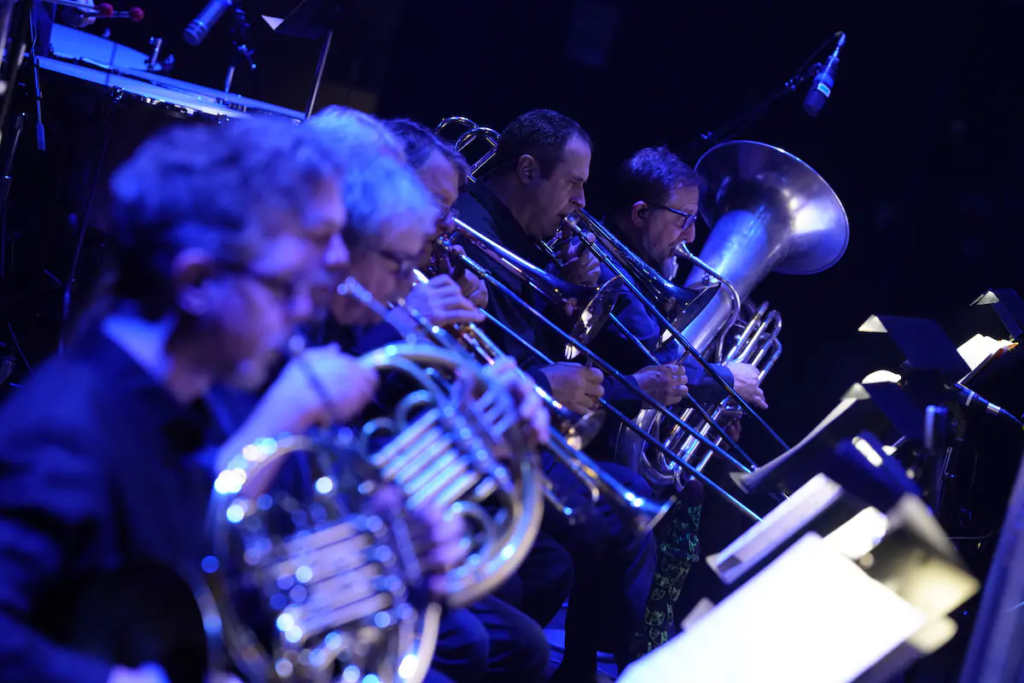
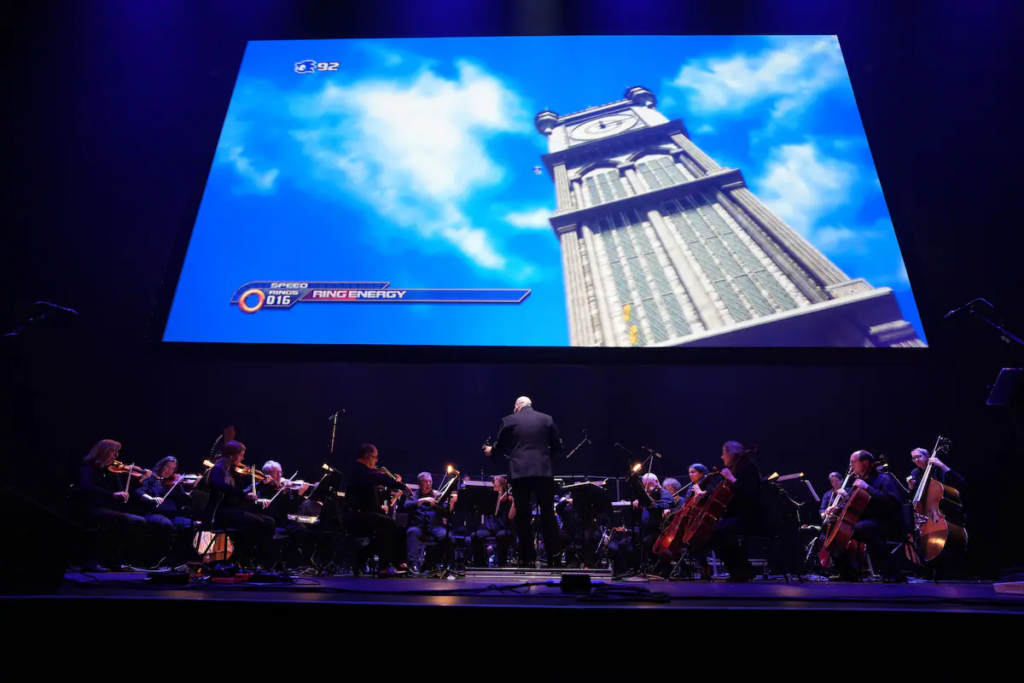
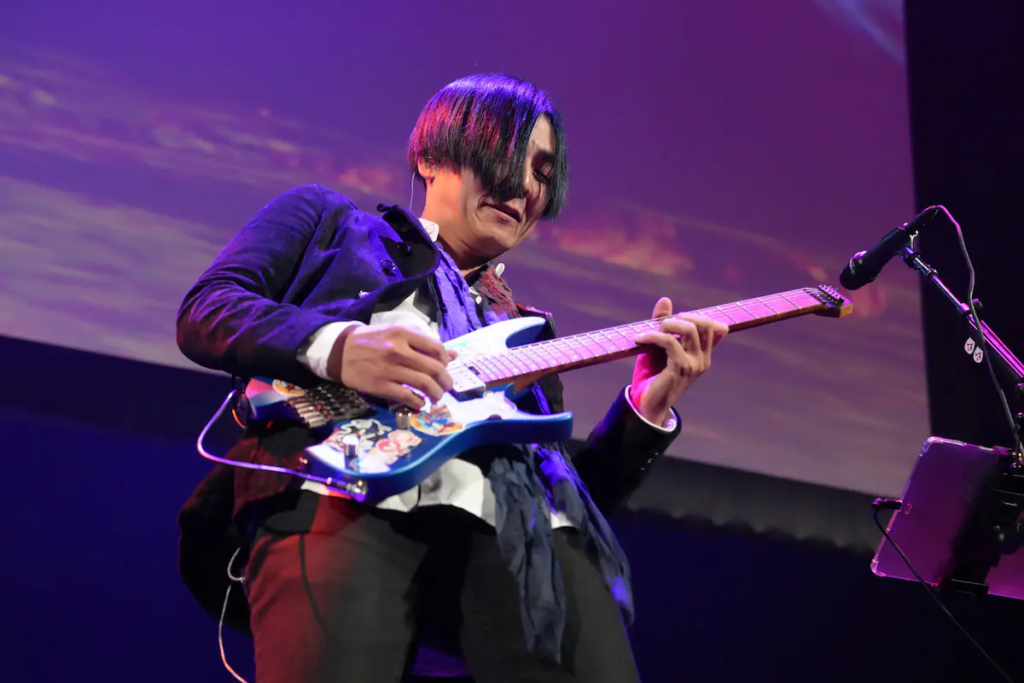
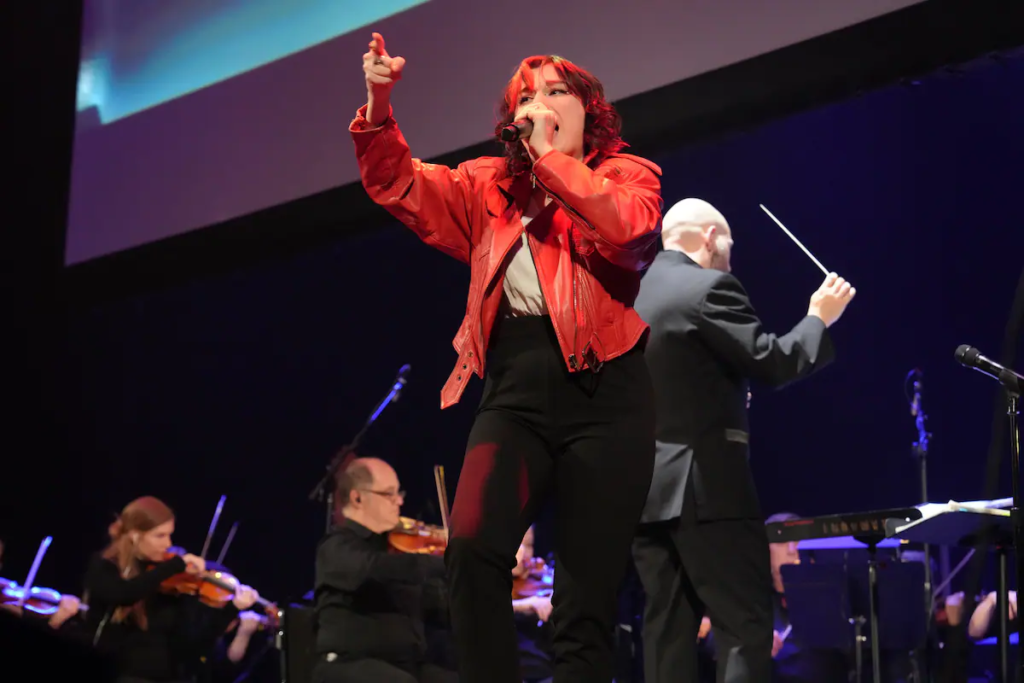
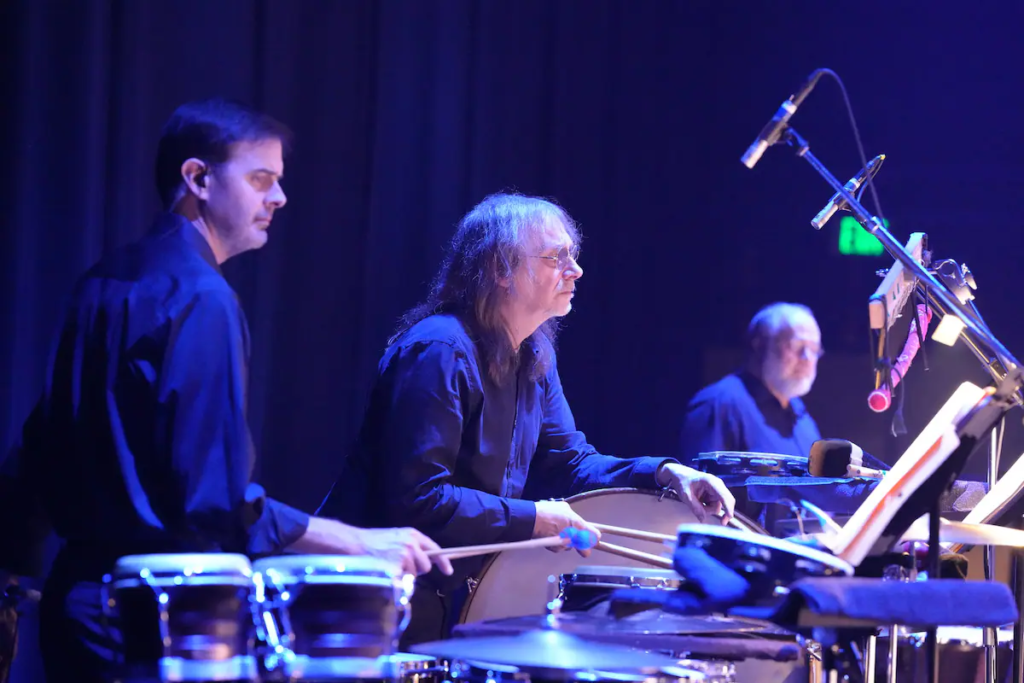
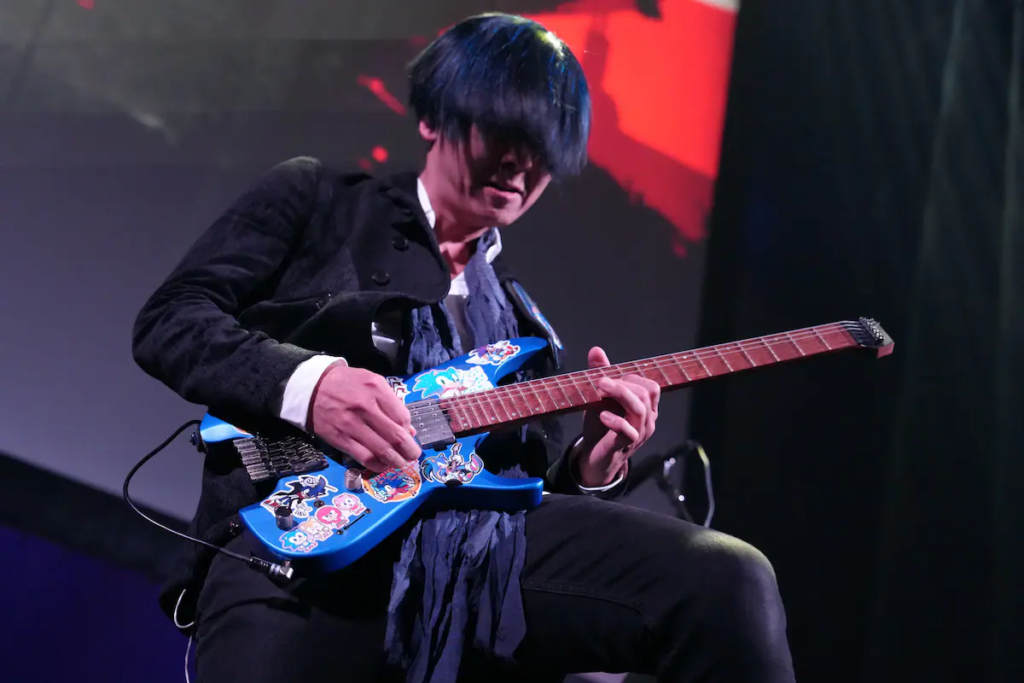
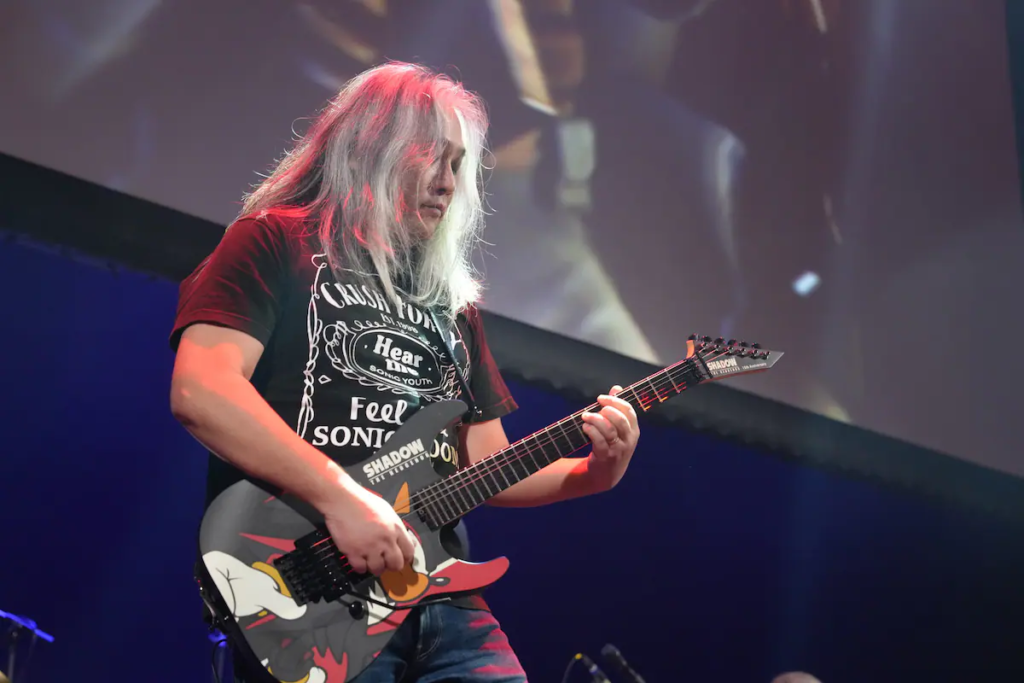
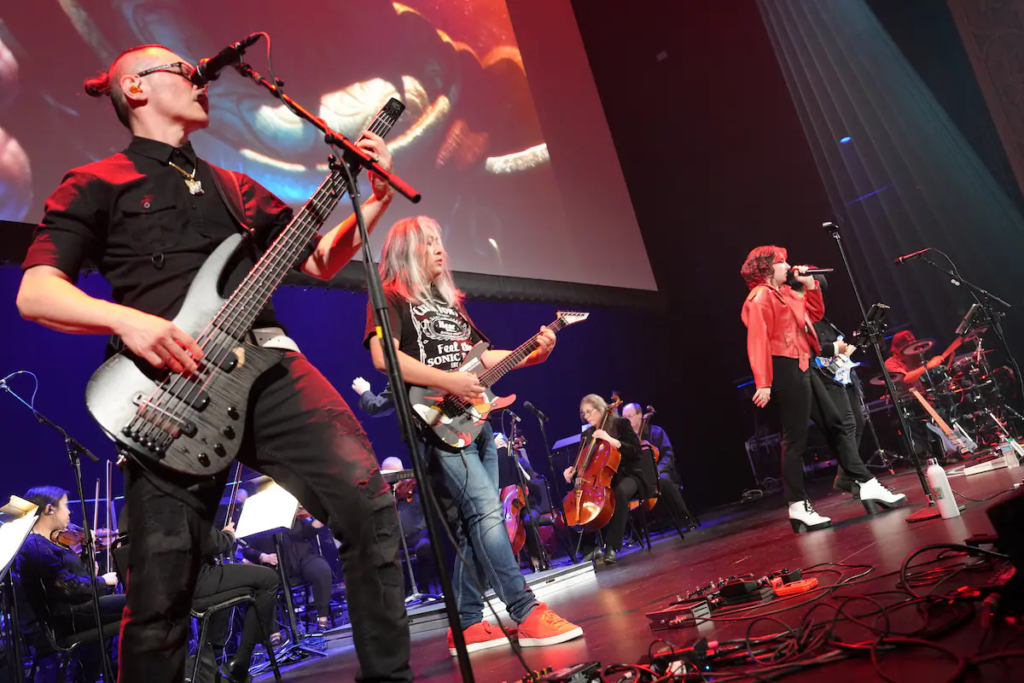
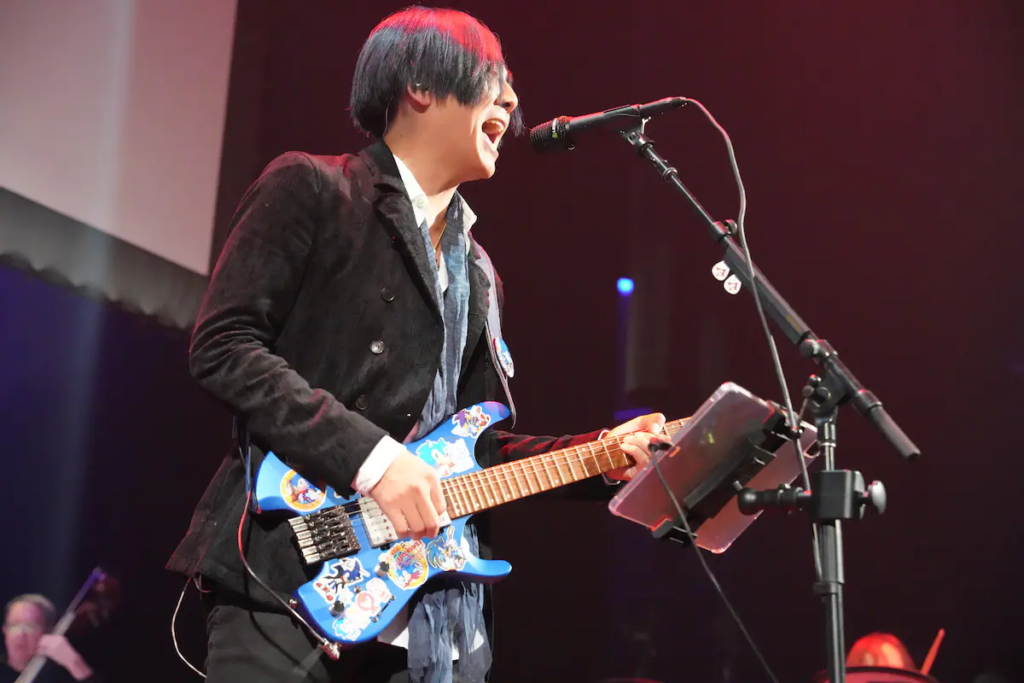
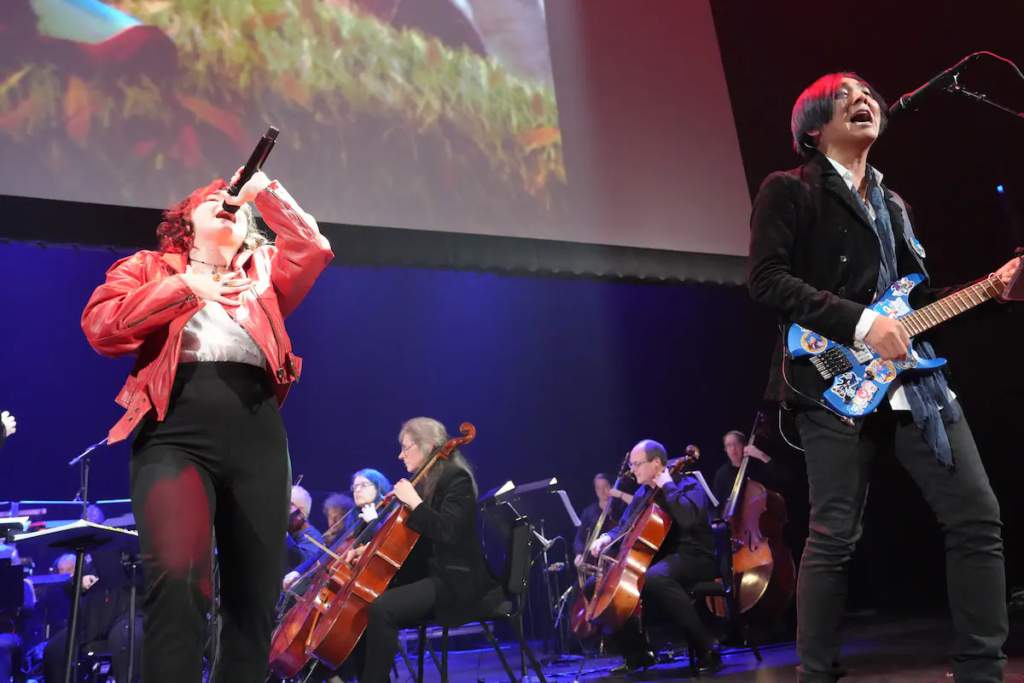
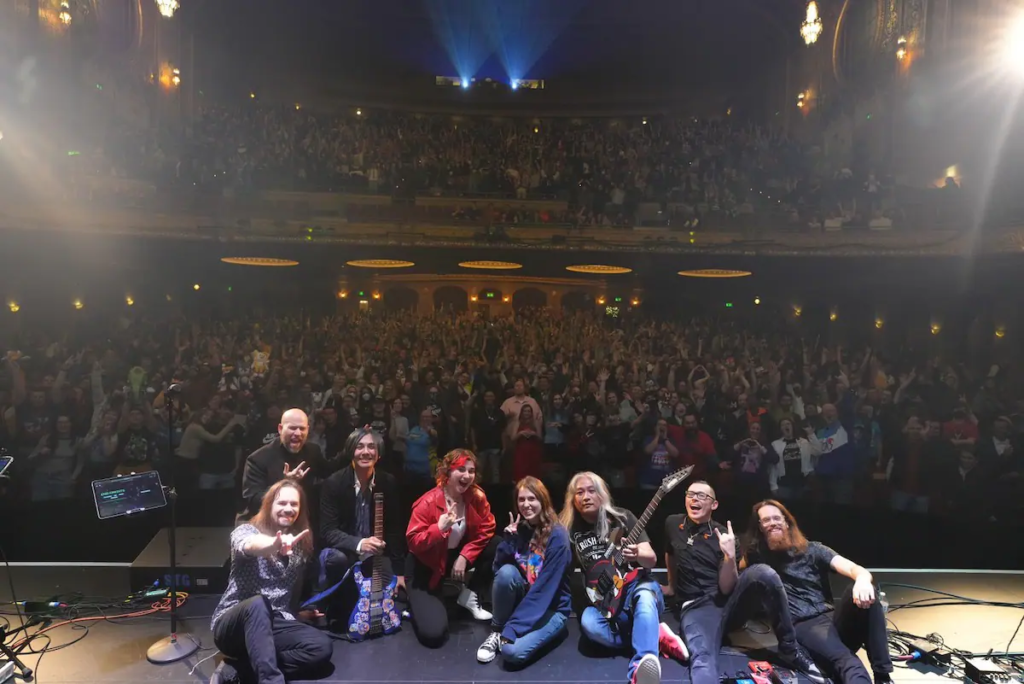
Ohtani: In that regard, I think I take a different approach to creating game music. I prioritize achieving the best form for recorded material, and live reproduction is secondary. I sometimes change the singer used for theme songs, and in Sonic Frontiers (2022), I altered the approach to the band’s sound, including the use of a multi-string guitar. Each time, I approach it with a sense of production, including songwriting and personnel selection. So, for my own songs, gathering all the original singers and fully reproducing them in one performance might be challenging.
Senoue: Someday, Ohtani should do it with his pocket money, right?
Ohtani: If it happens, it might turn into a festival (laughs)!
Nakama: (laughs) But the difference in your individual styles also adds to the excitement of the concert, I think. When talking with staff from SEGA’s US branch, they mentioned the concept of a concert that traces the history of the Sonic series, and when we arranged the songs, you can indeed feel a separation by era in blocks.
The members of the band this time really love both of you, not just as players but as individuals. I shared time with Senoue at the recent Brazil performance, and every time we go to a different place, the members gradually come to like Senoue more. Every time we meet, they ask, “When is Jun coming next?” (laughs). So, being able to approach the Japanese performance with this lineup is truly exciting.
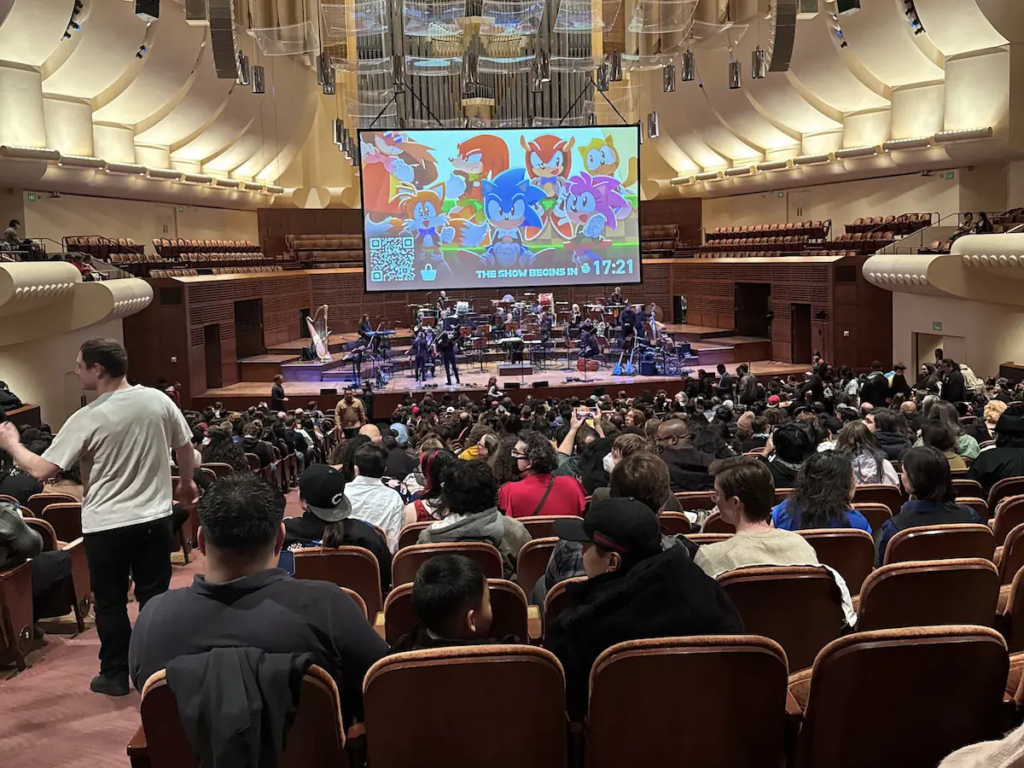
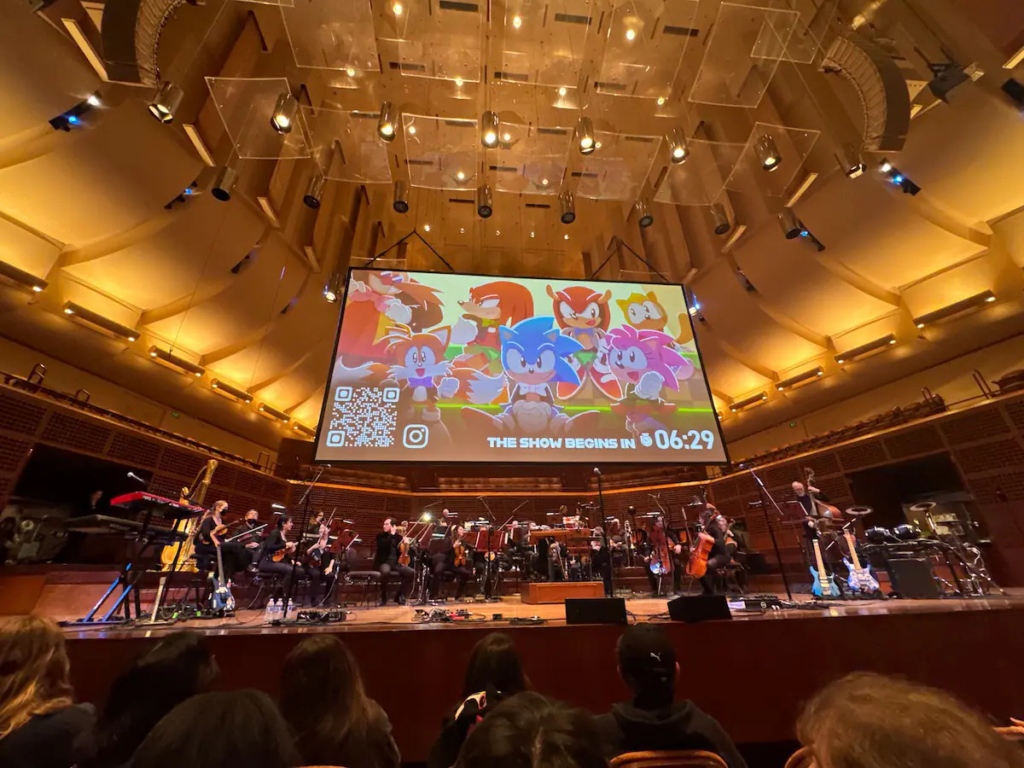
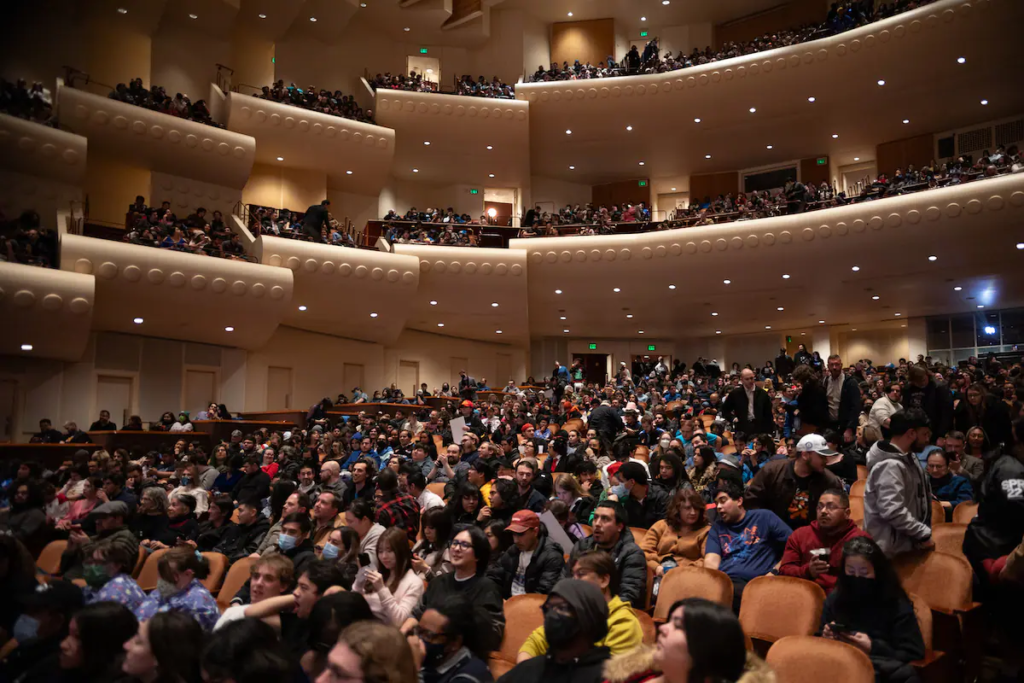
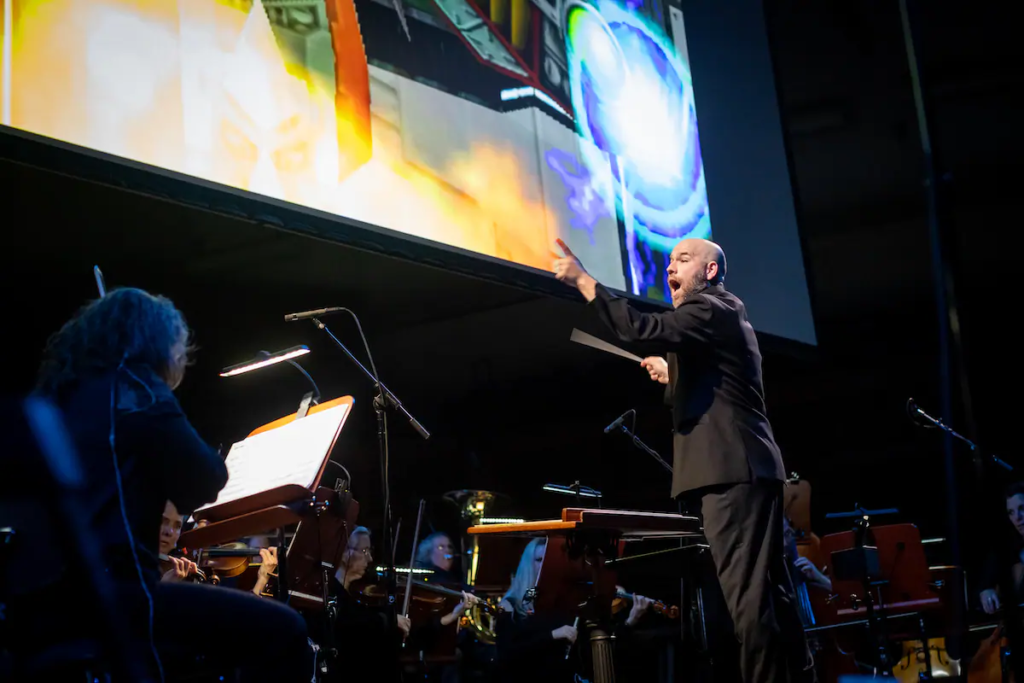
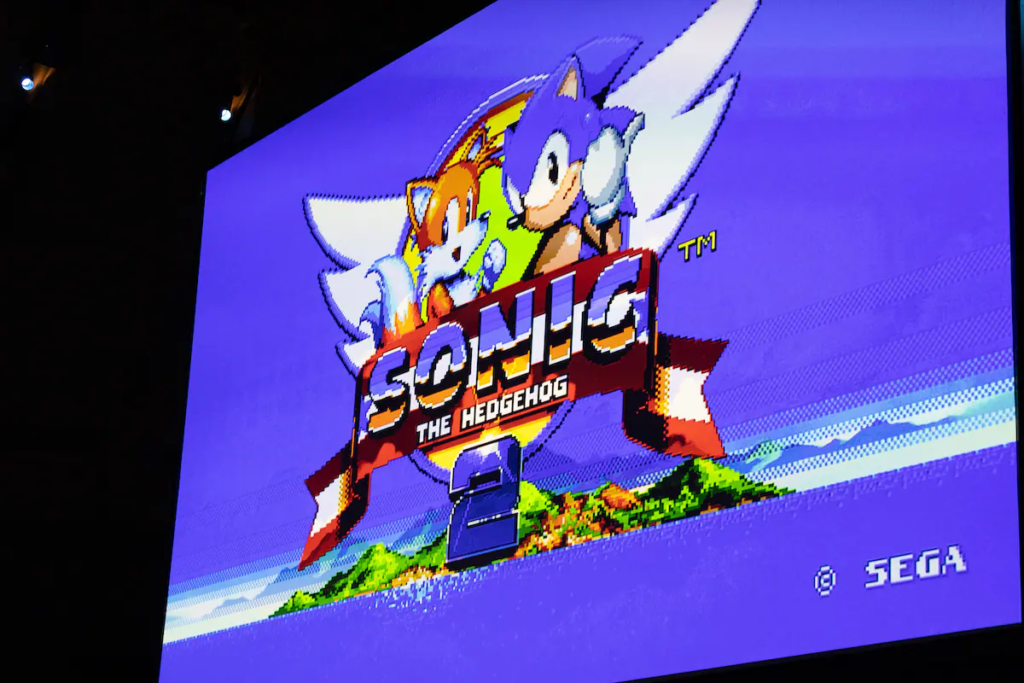
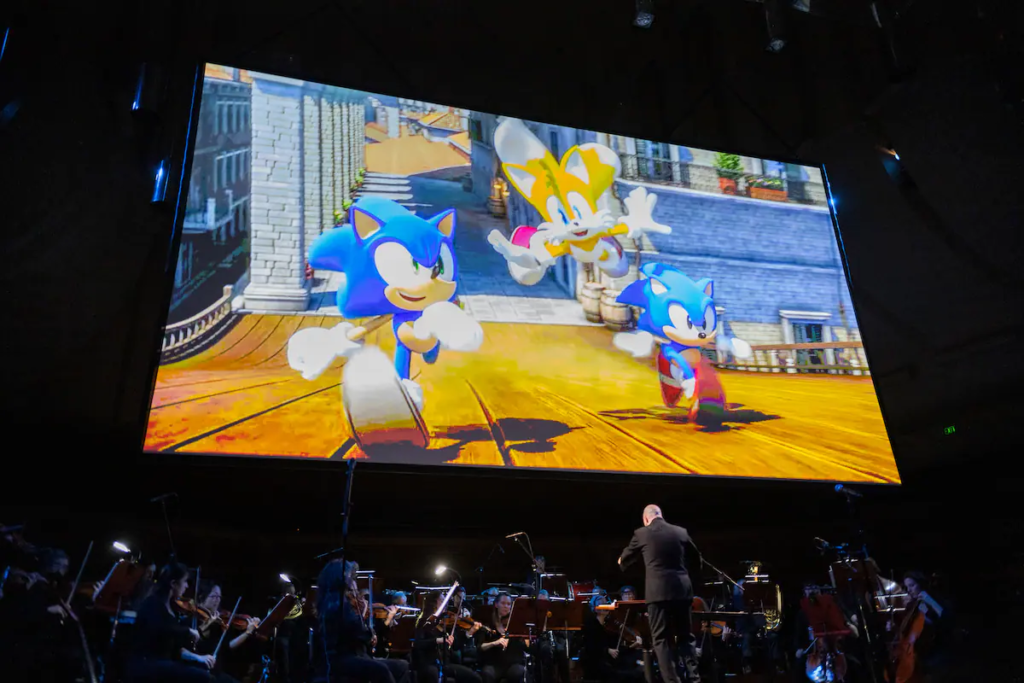
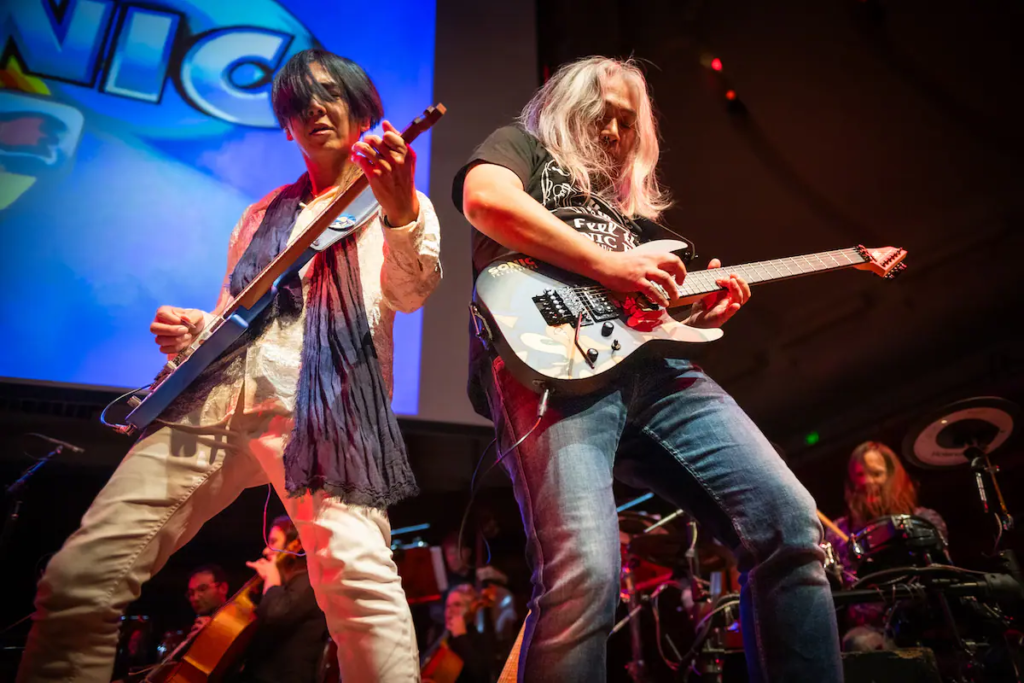
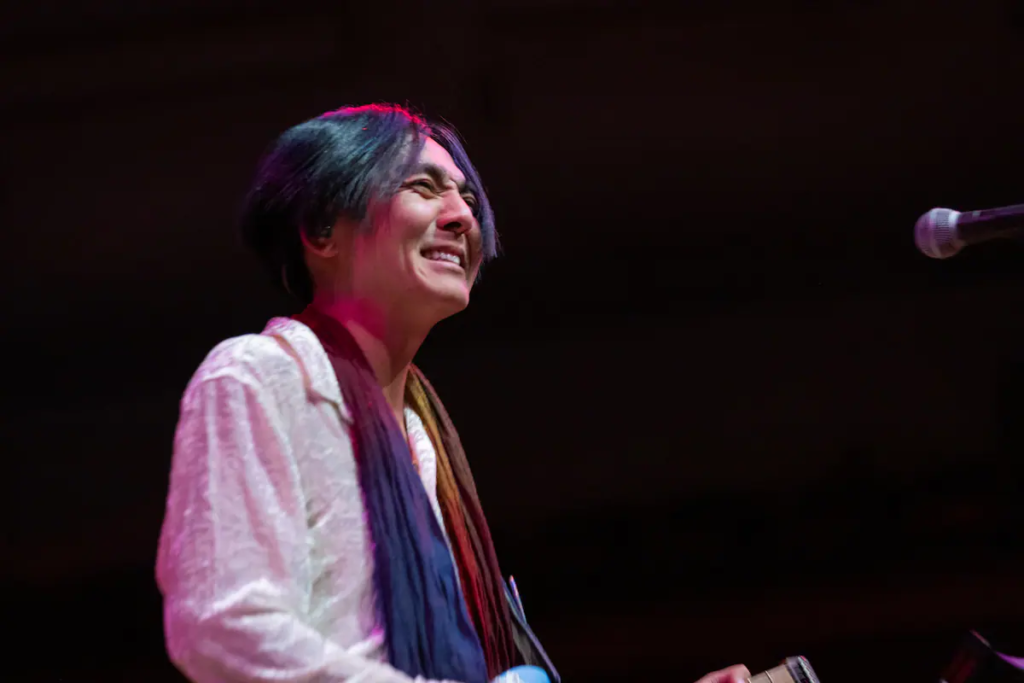
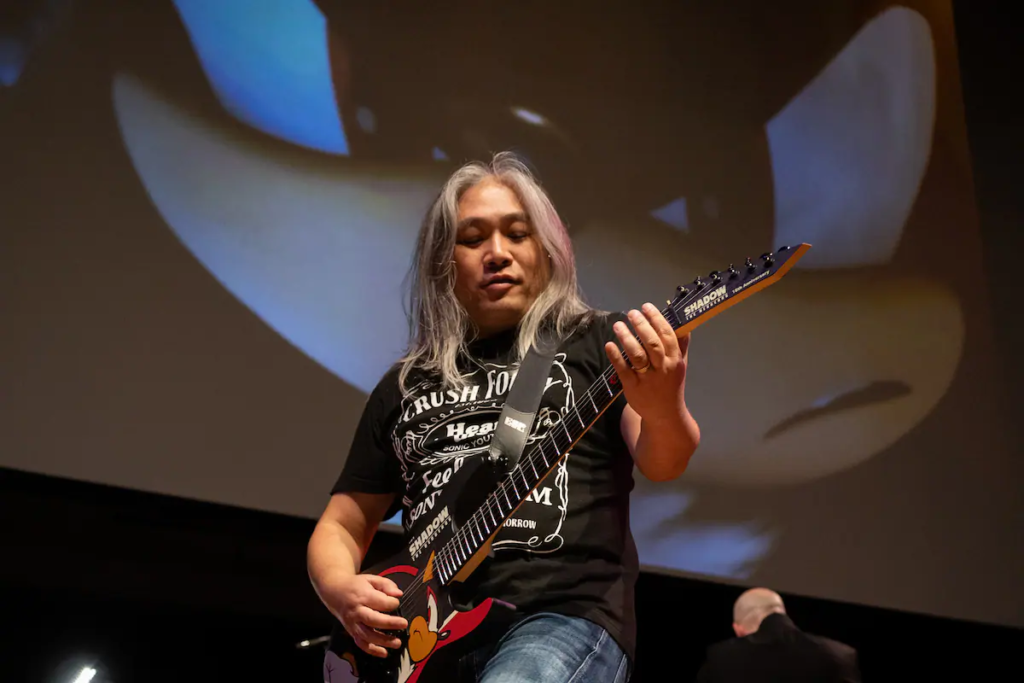
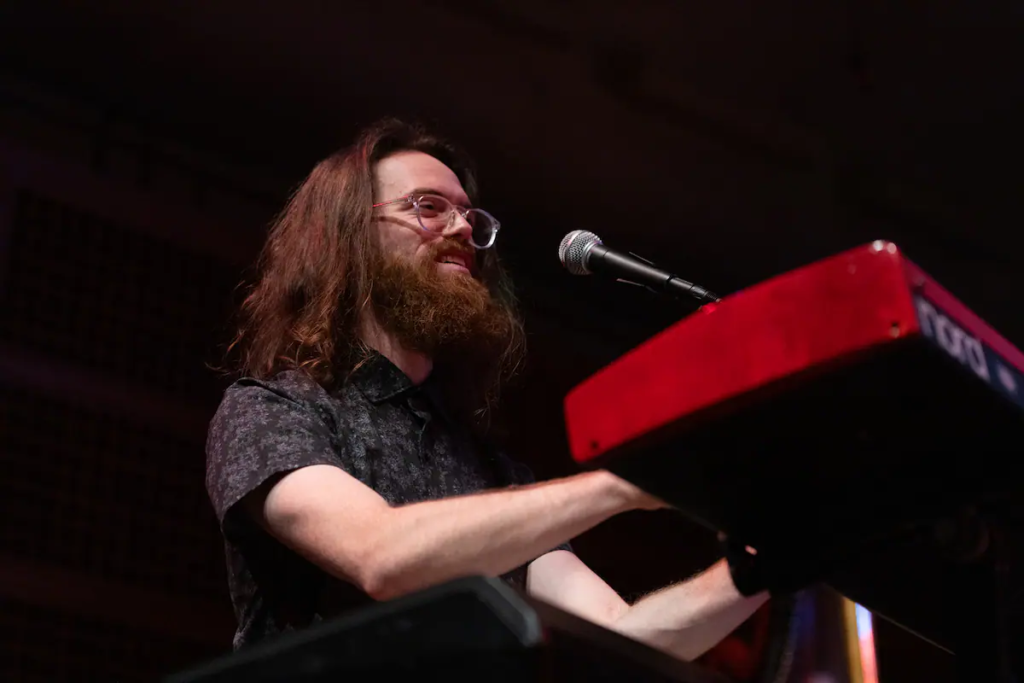
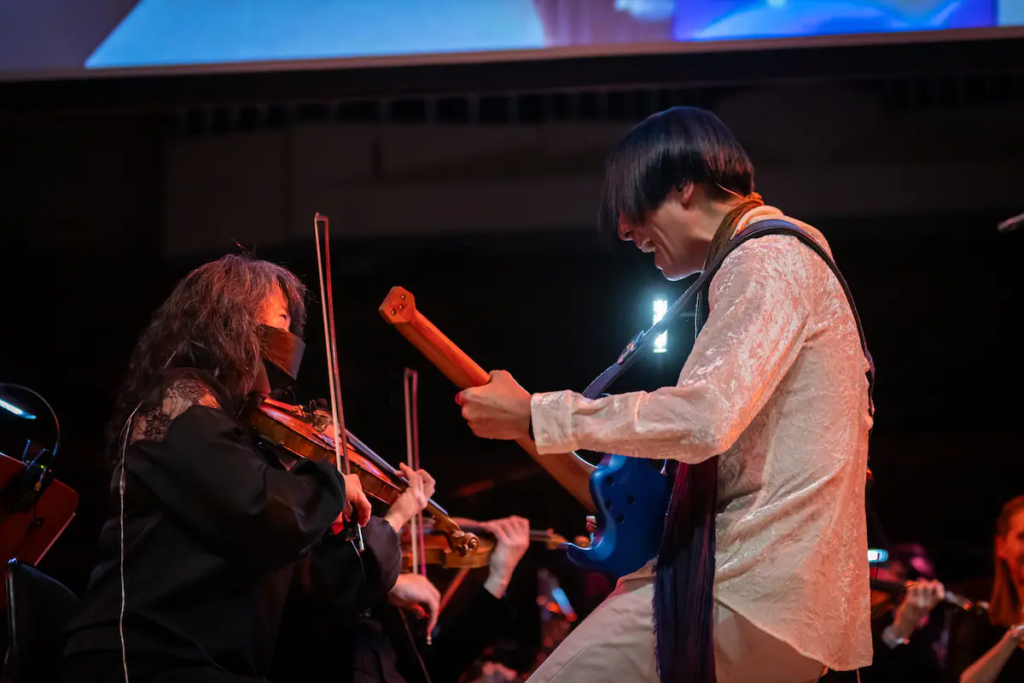
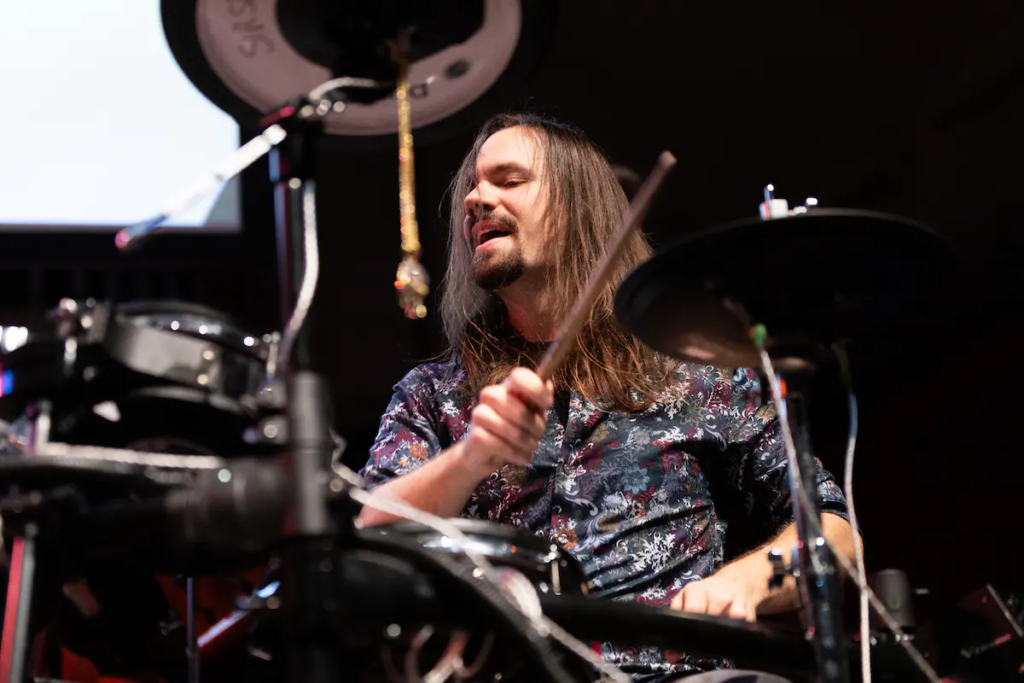
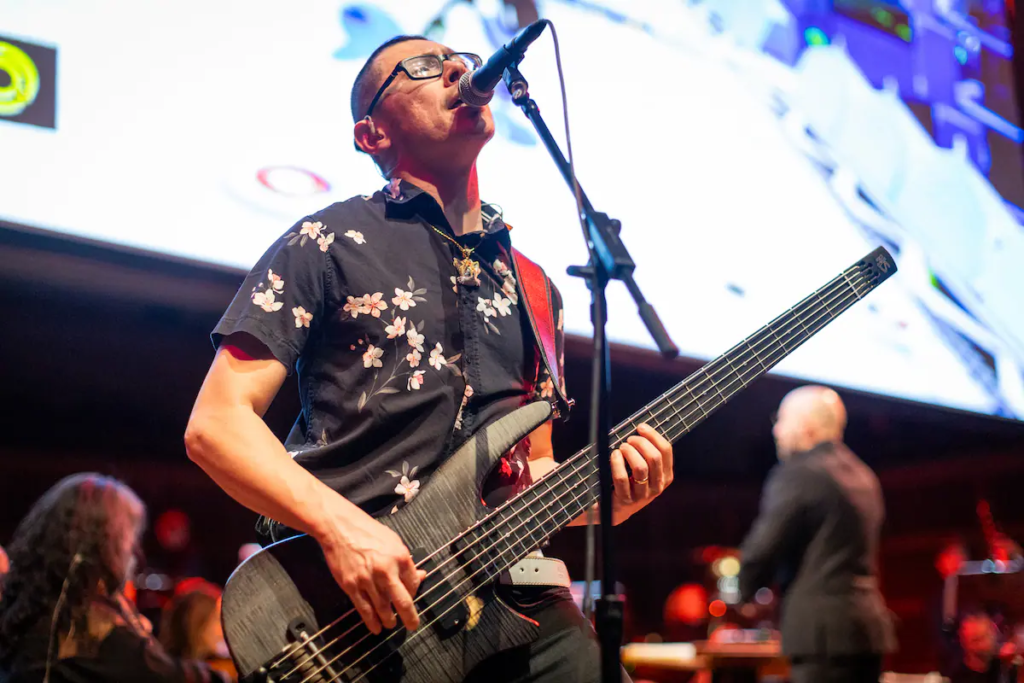
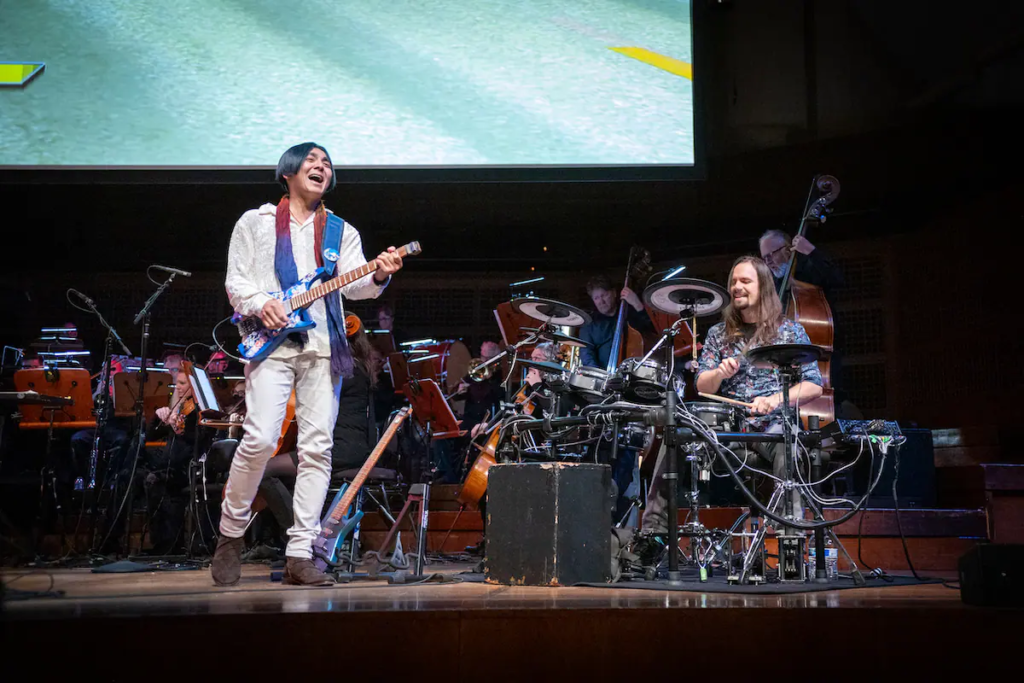
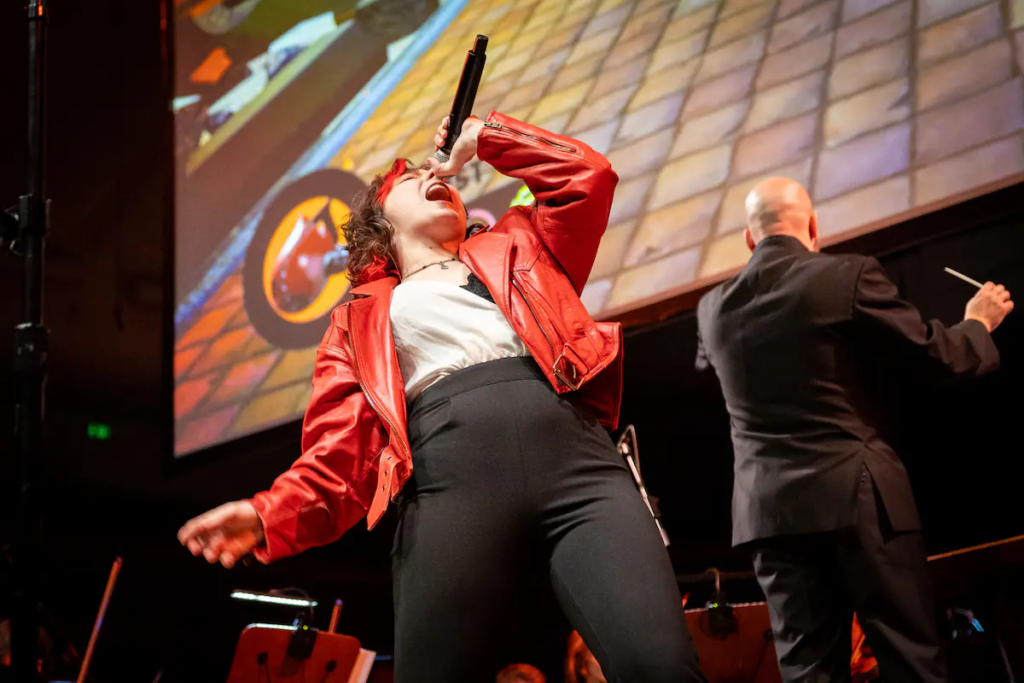
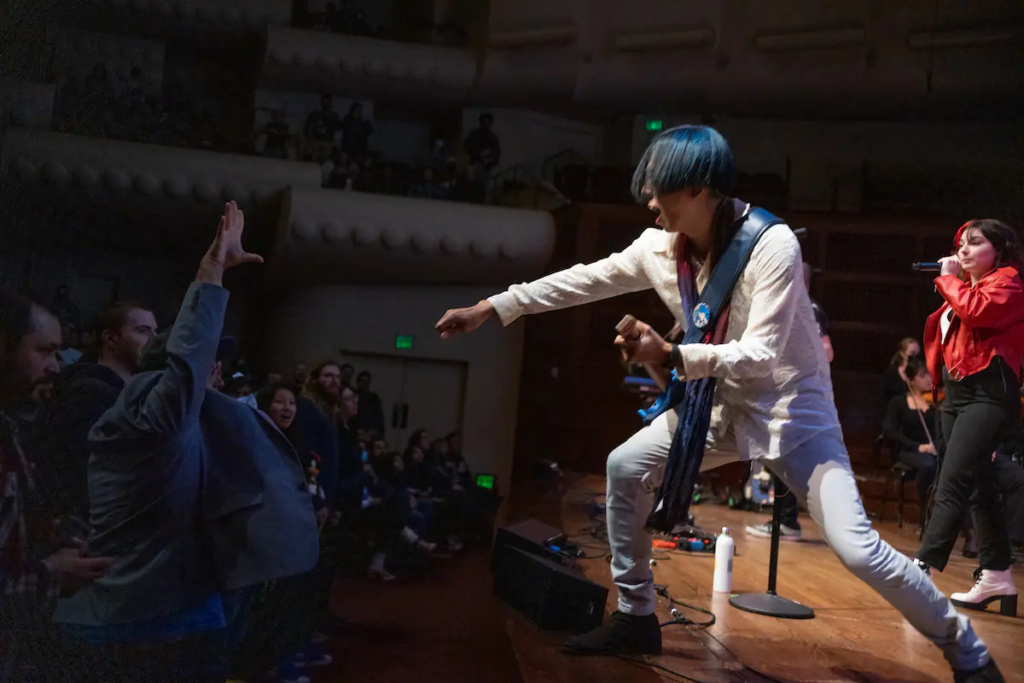
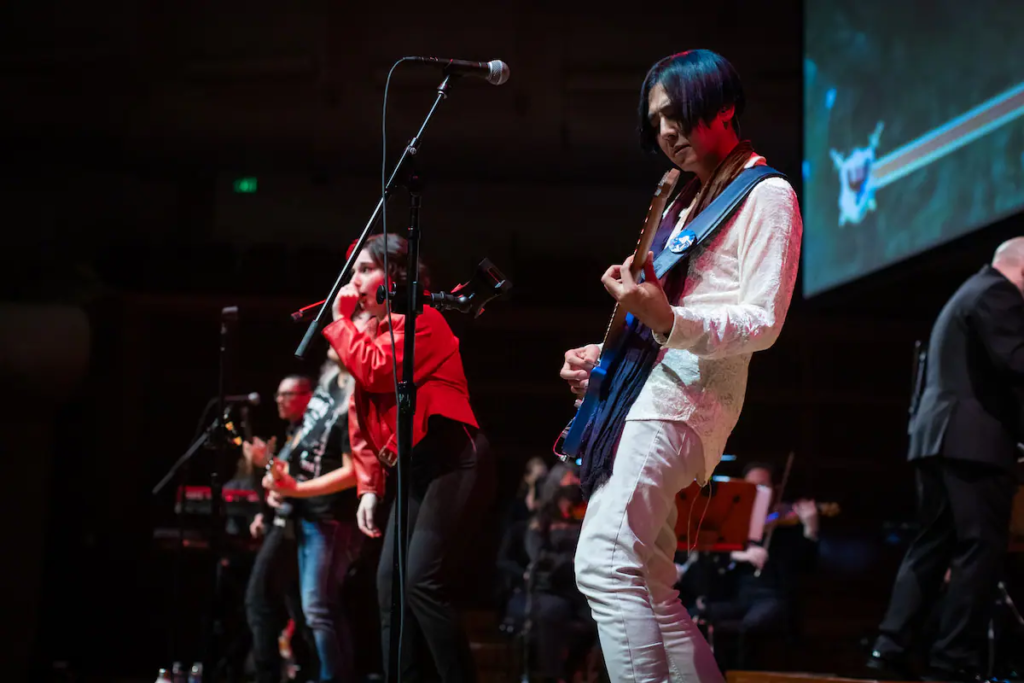
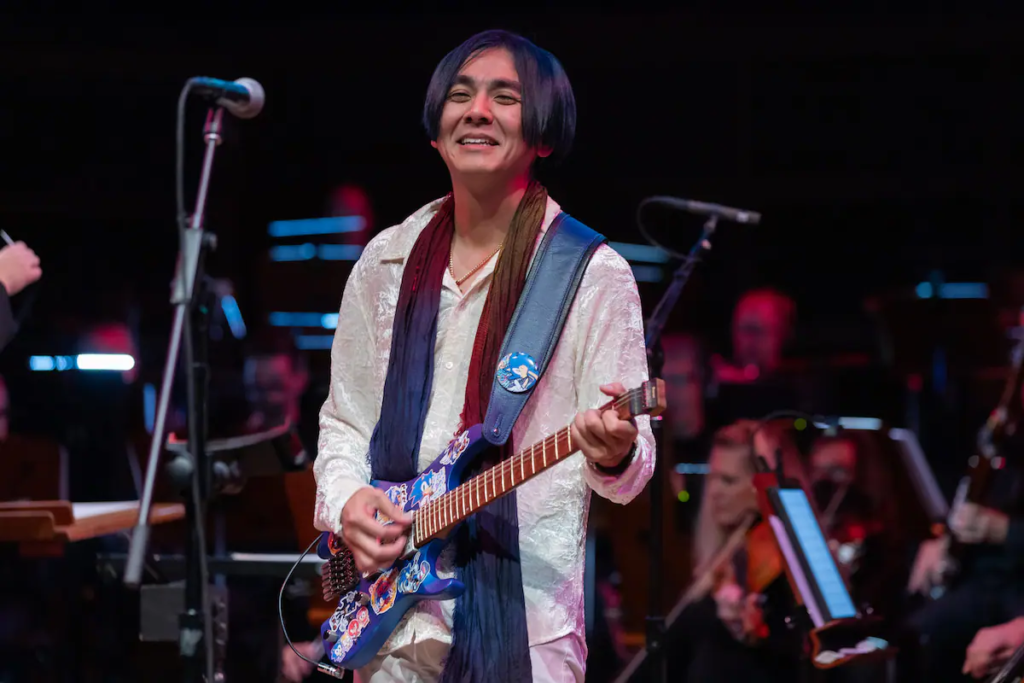
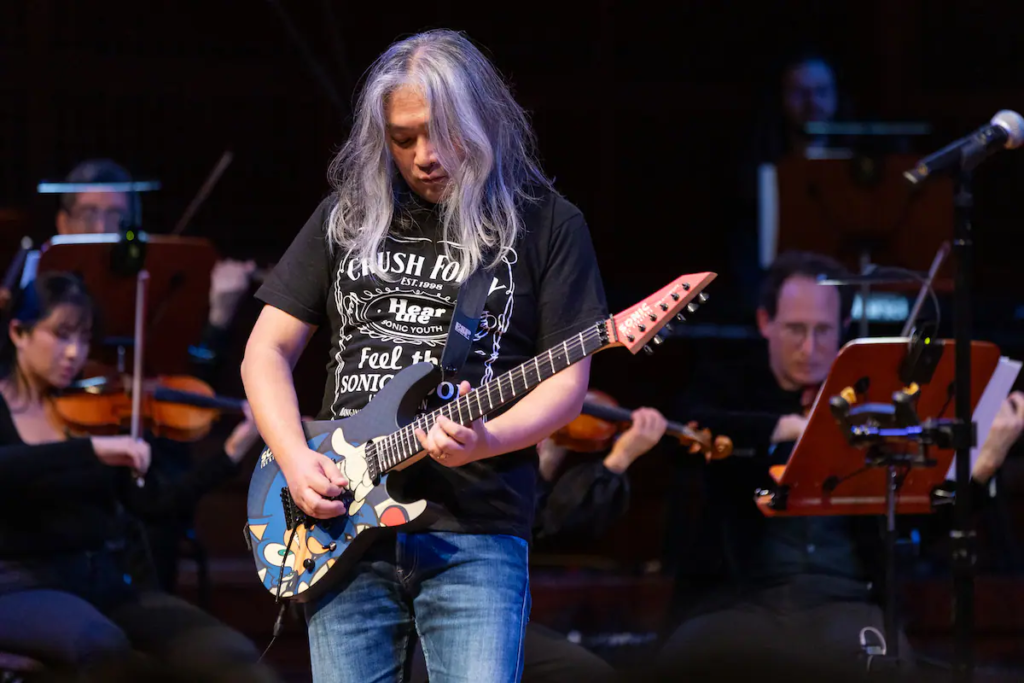
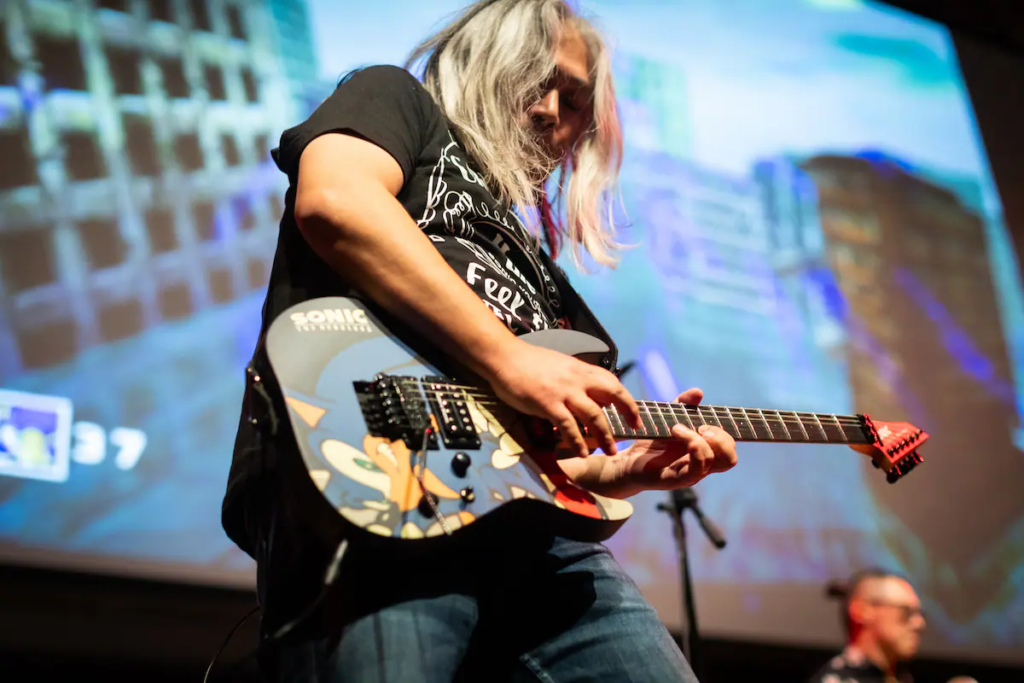
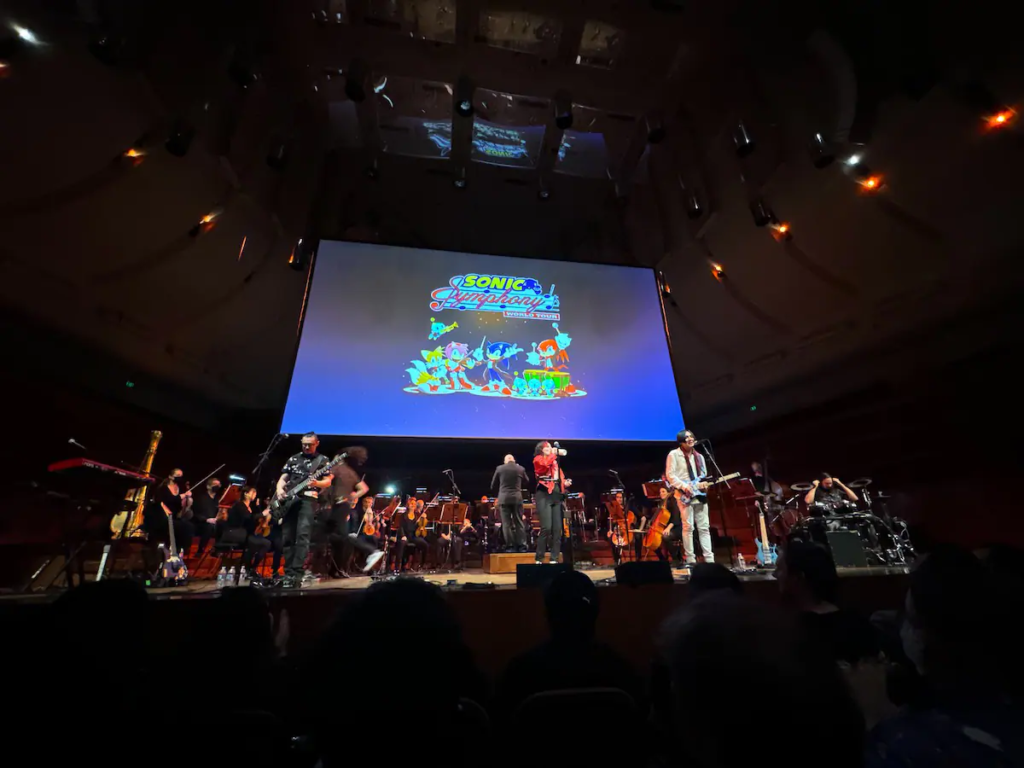
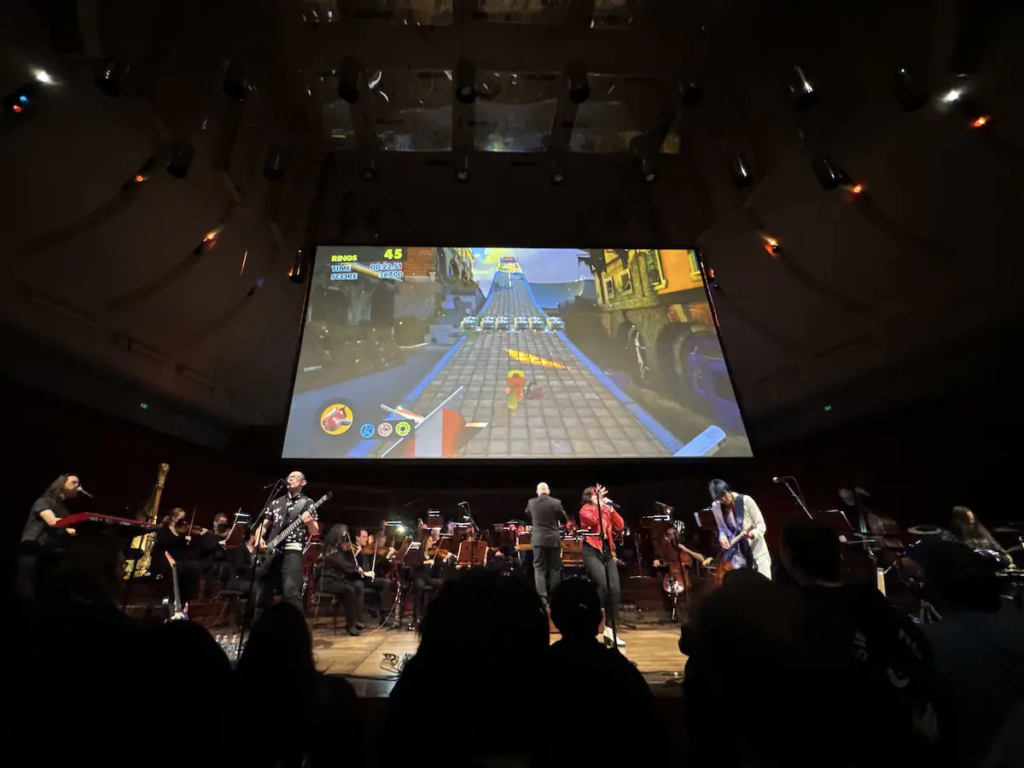
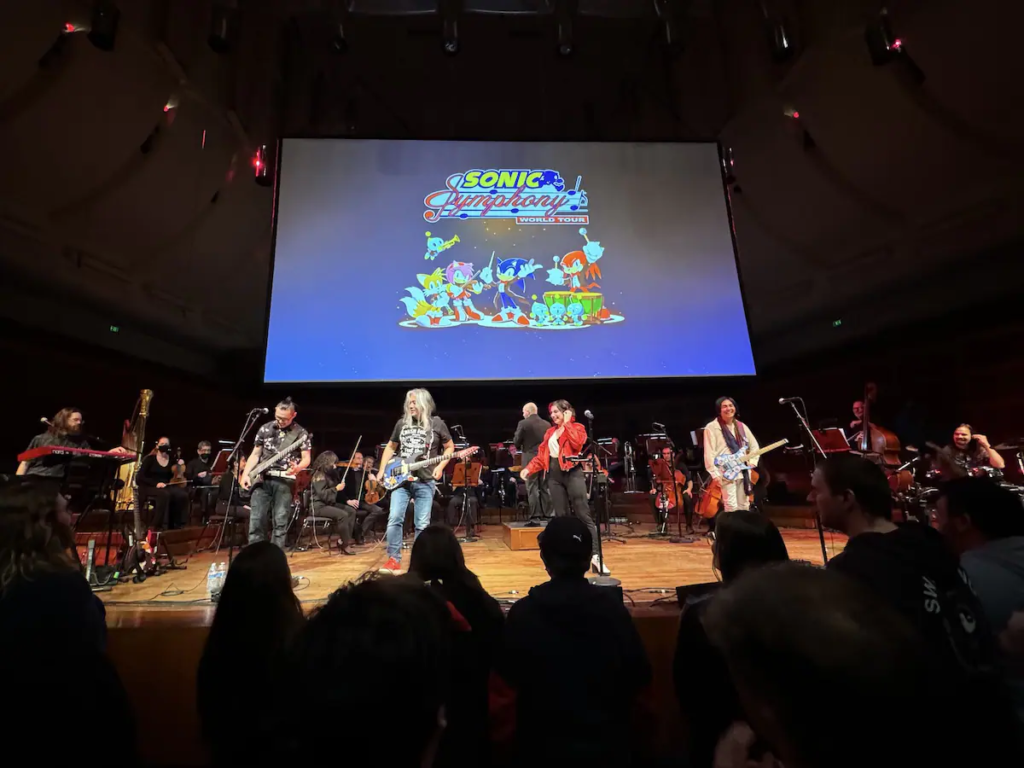
―― The Sonic 30th Anniversary Symphony had a perfect setlist, didn’t it? After shedding a tear with Mr. Ohtani’s “Endless Possibility,” Mr. Senoue’s rock numbers come in one after another. I’m personally very excited about the Sonic Symphony Japan performance too.
Nakama: The first half is a part with only the orchestra, but I want to make it like a rock concert in terms of content. It’s okay not to be too polite—. I want you to raise your voices at moments like when your favorite songs are played. So far, this has been achieved in overseas performances, so I want to bring that atmosphere back to Japan.
Senoue: Like Mr. Nakama, I’m also looking forward to the audience’s reactions. Japanese audiences also raise their voices, especially during call-and-response moments, but in overseas performances, there’s an impression that people are expressing themselves more freely and enjoying the show, so I hope we can create a similar situation in Japan.
Ohtani: The Sonic Symphony starts with delicate orchestral music and ultimately transitions into hard rock and heavy metal, with everyone standing and singing along. The wide range of this concert, spanning from delicate orchestration to powerful rock, is its biggest charm and represents the potential of Sonic’s music. Although I’ve performed in London and Los Angeles, I want to deliver an even better performance in the Tokyo show.
Nakama: There’s time to immerse yourself in the world of Sonic, moments where you’re moved by the overwhelming energy of the rock band, and various sections in this concert. In the space we create with our performances, I want everyone to have a fun time. That’s my biggest wish.
Event Information: “Sonic Symphony”
- Date: February 11, 2024 (Sunday)
- Venue: LINE CUBE SHIBUYA
- Doors Open: 17:00 / Start: 18:00
- VIP Seats: ¥15,000 (Includes special merchandise)
- A Seats: ¥9,900
- All seats are reserved and include tax.
- Children under 3 years old are not allowed.
- Special merchandise can be redeemed at the on-site counter.
Ticket Sales:
- Lawson Ticket: https://l-tike.com/sonicsymphony/
- Ticket Pia: https://w.pia.jp/t/sonic-symphony/
- Eplus: https://eplus.jp/sonicsymphony/

Source: Real Sound


